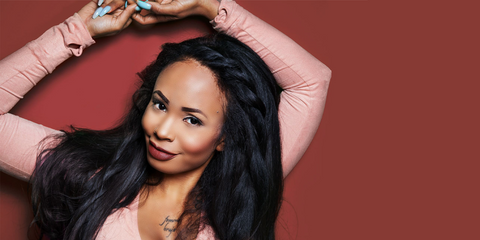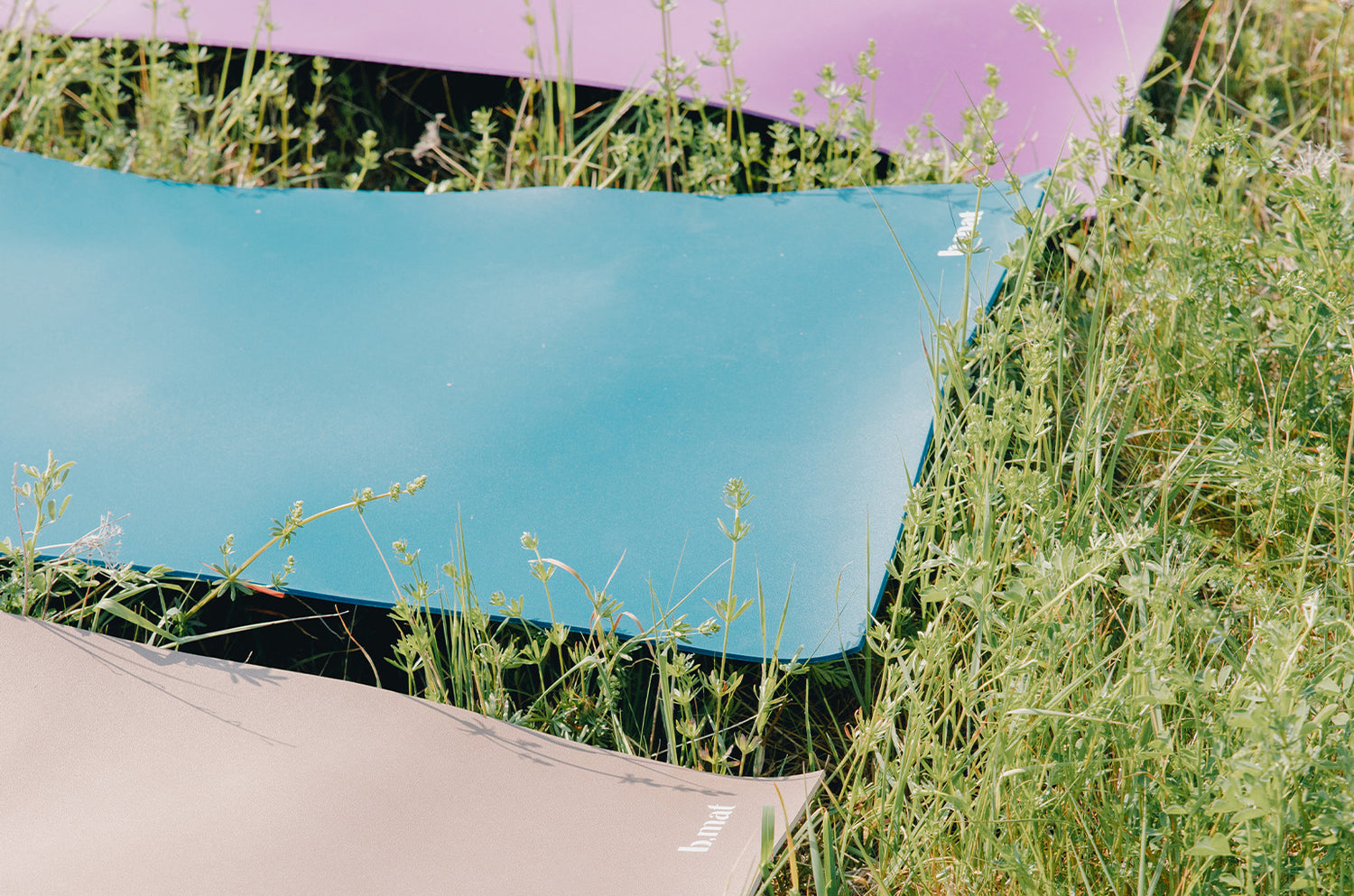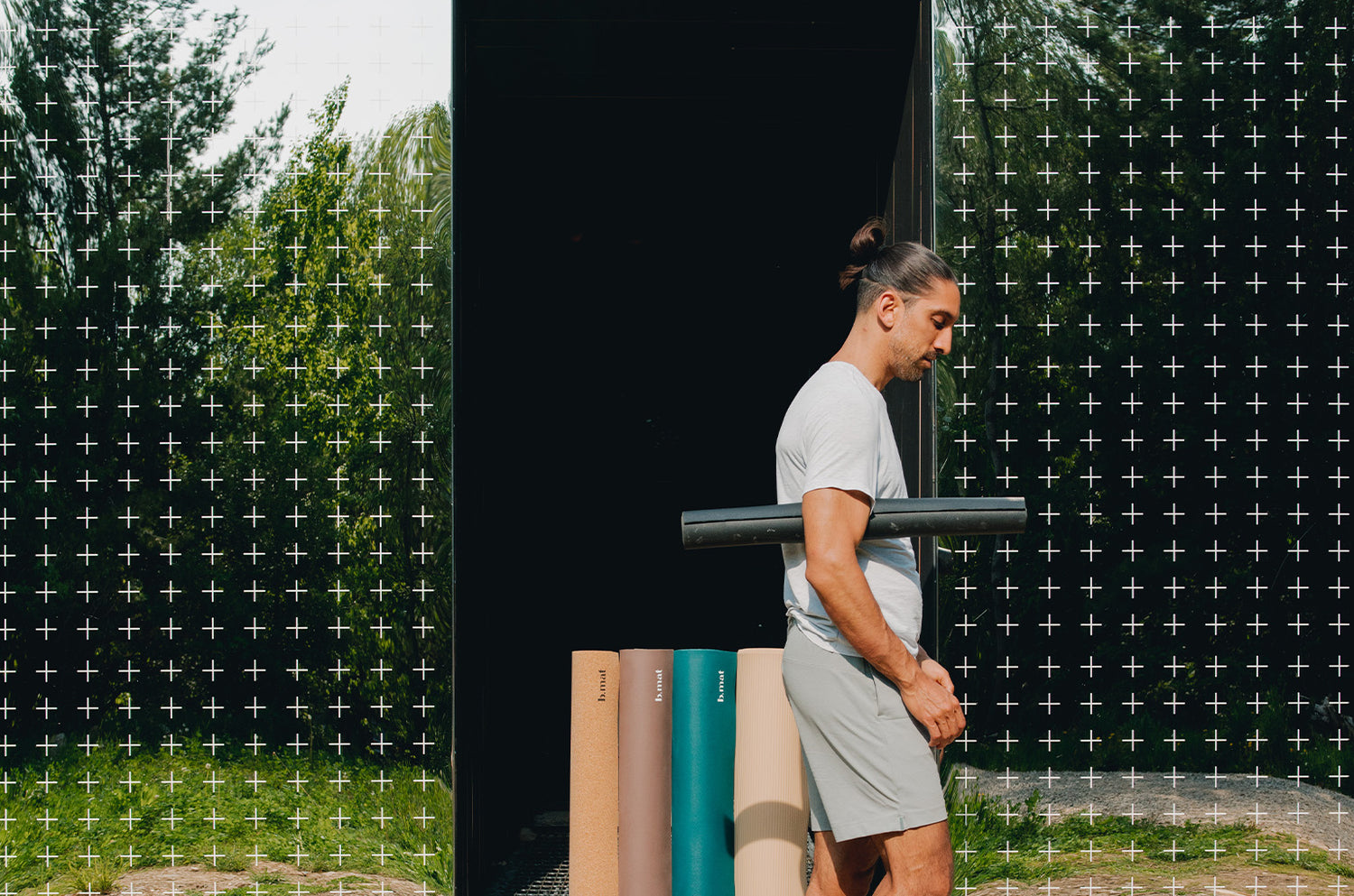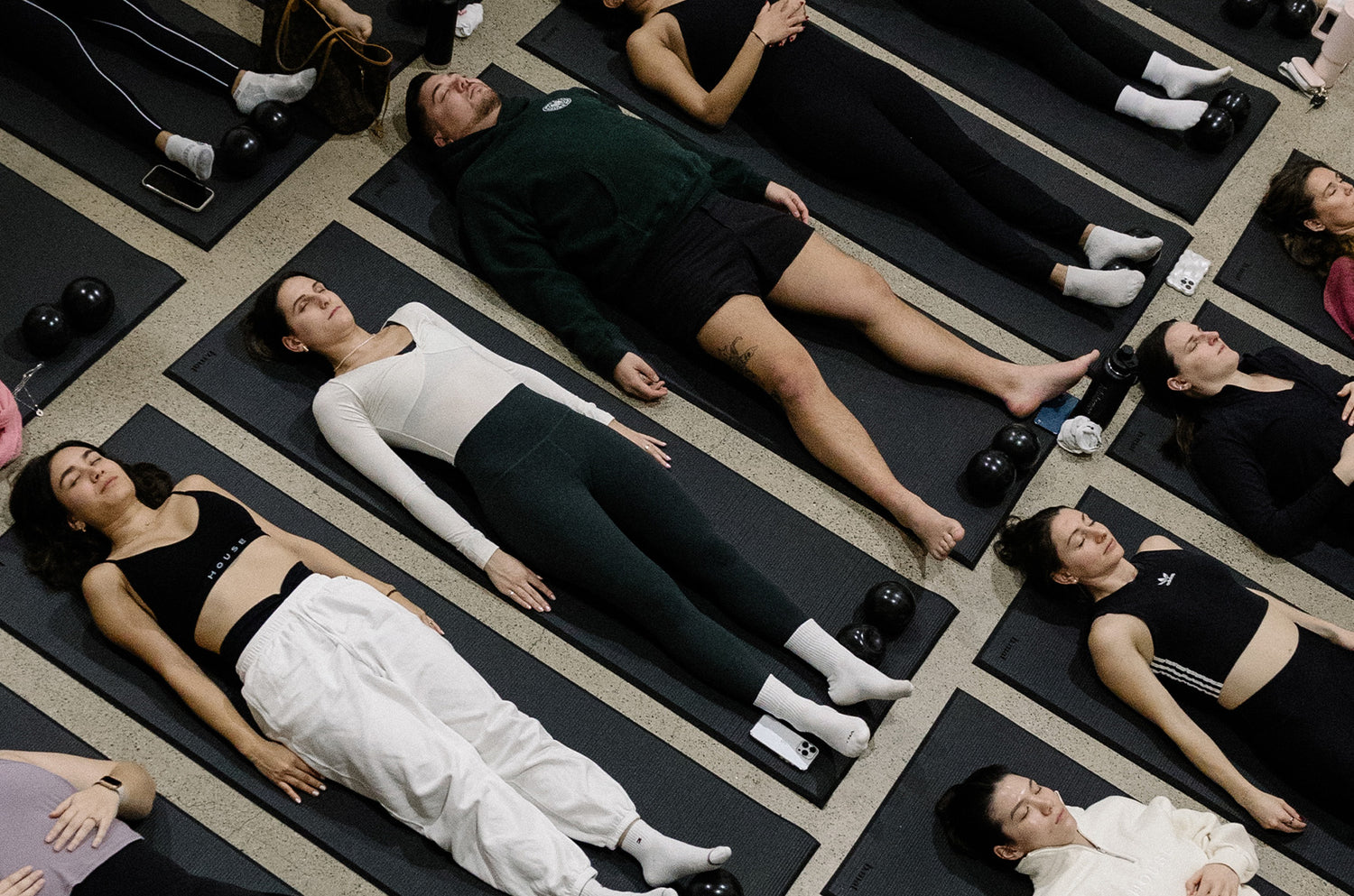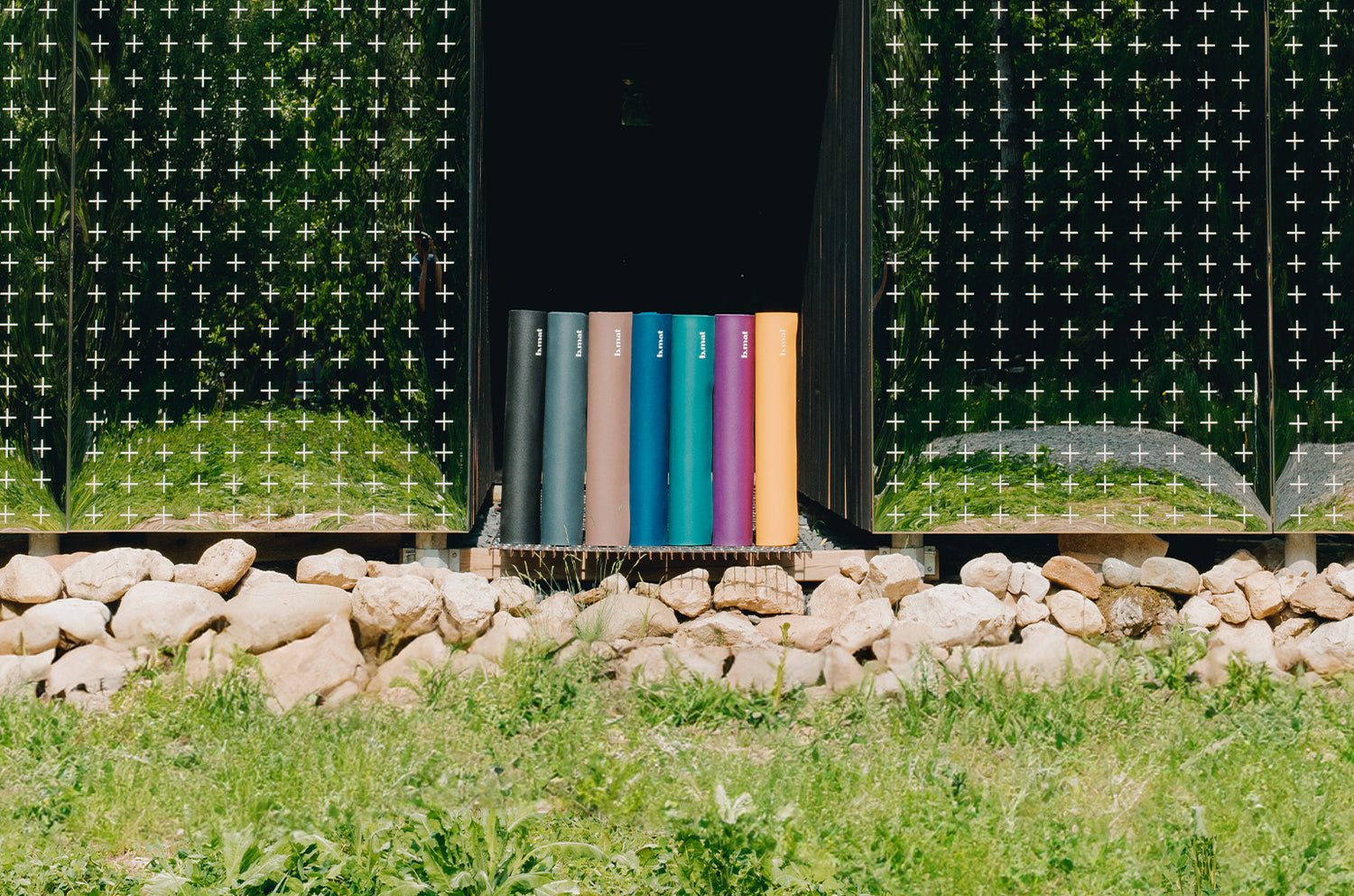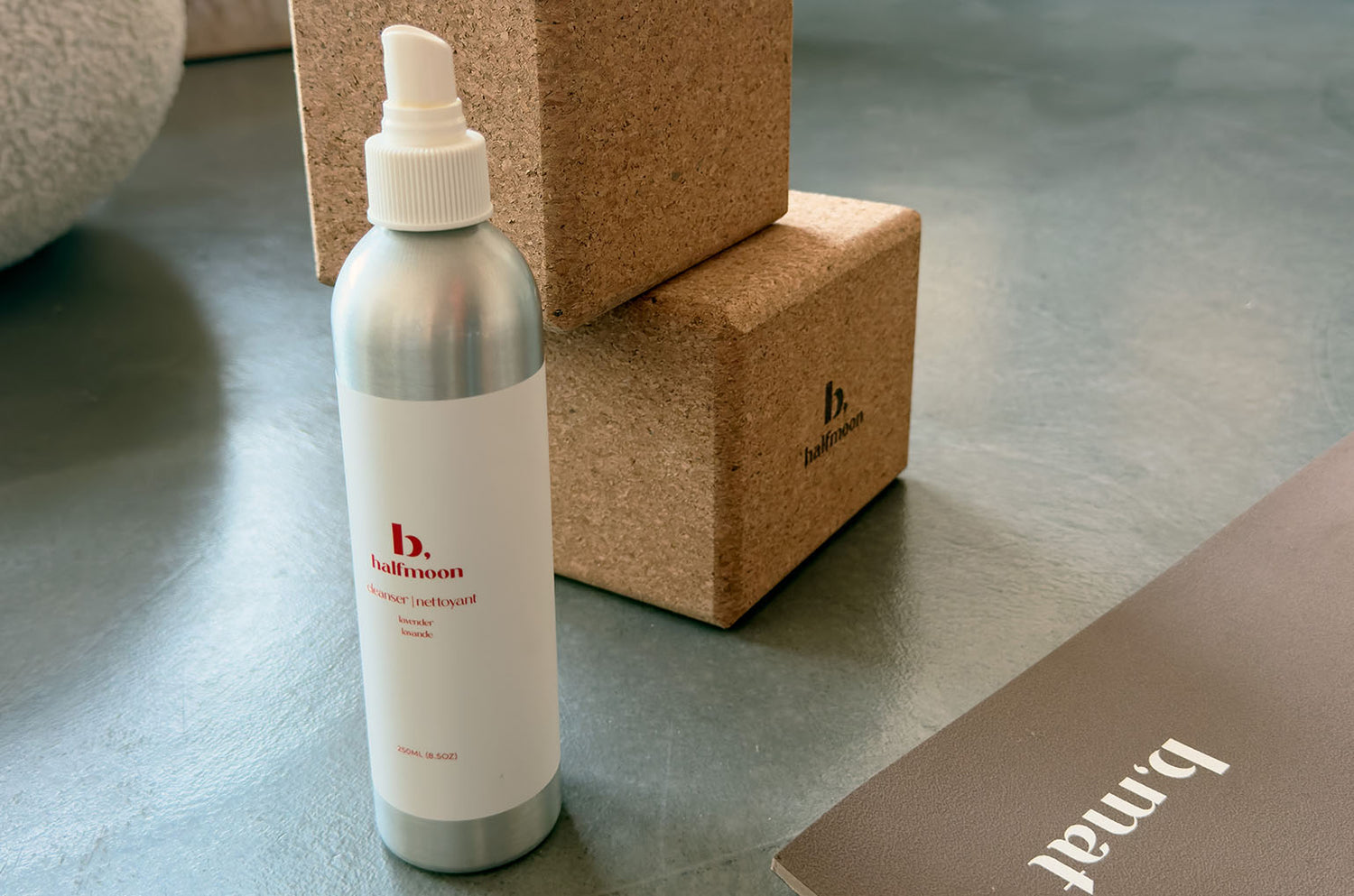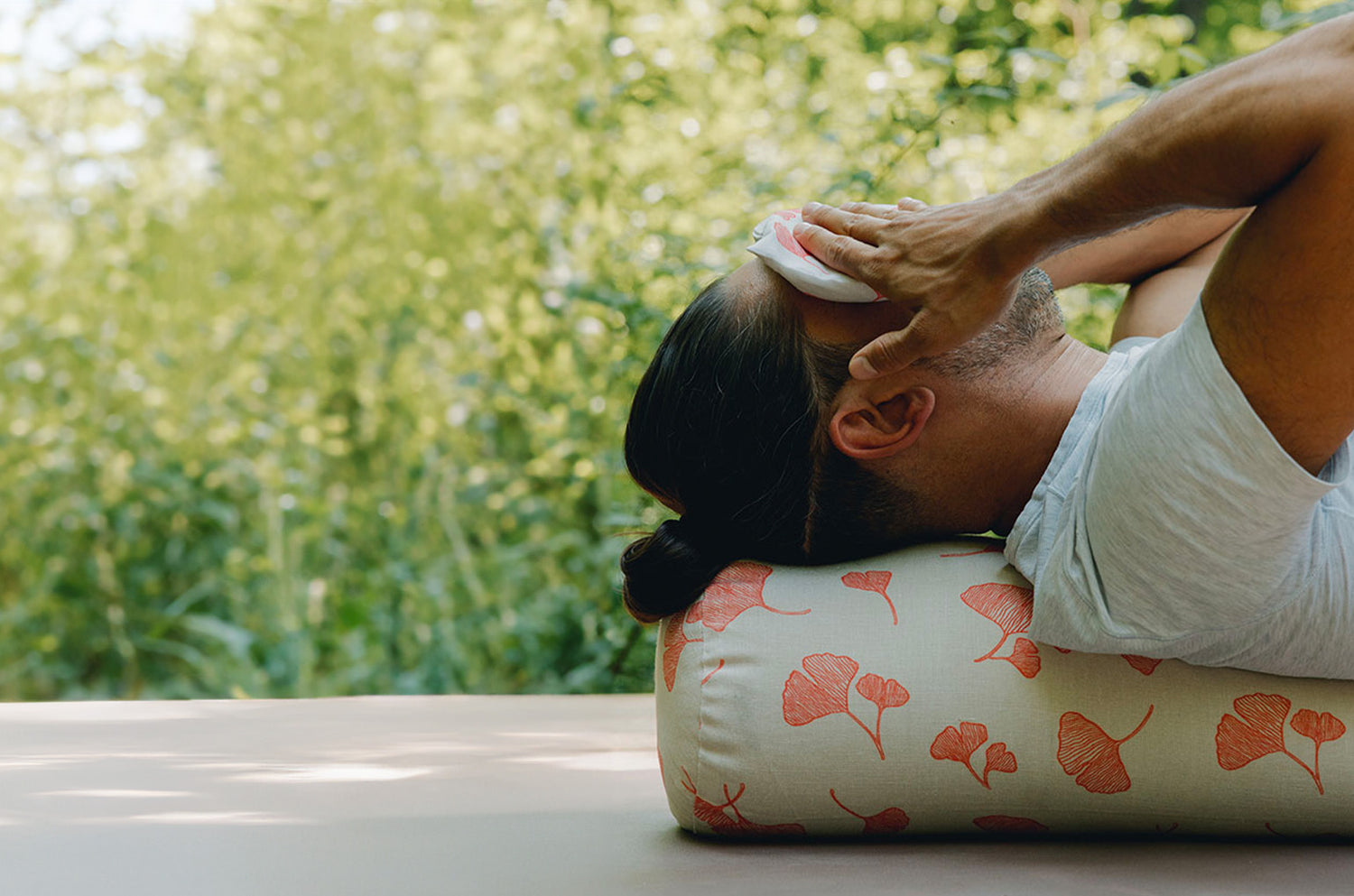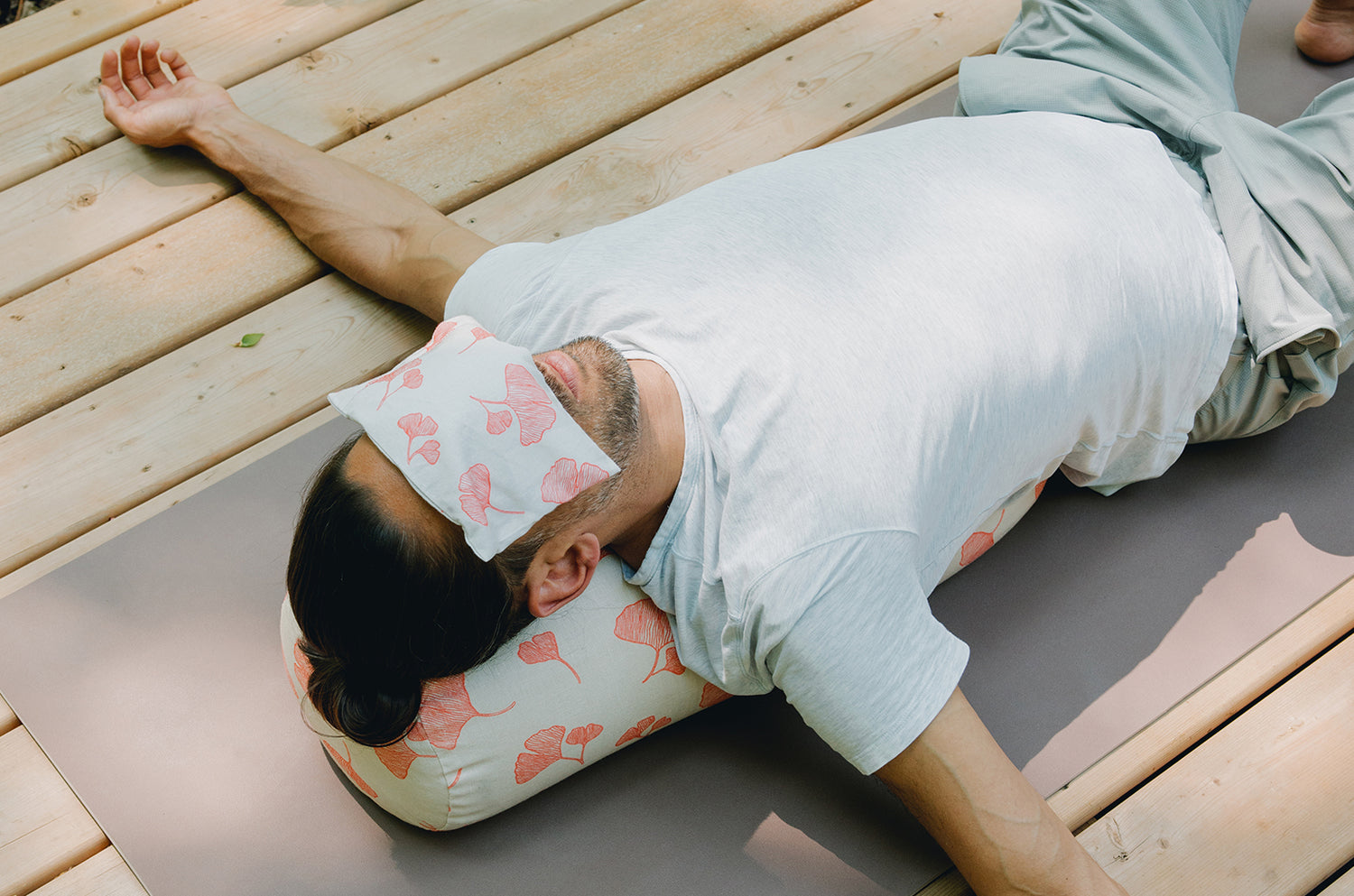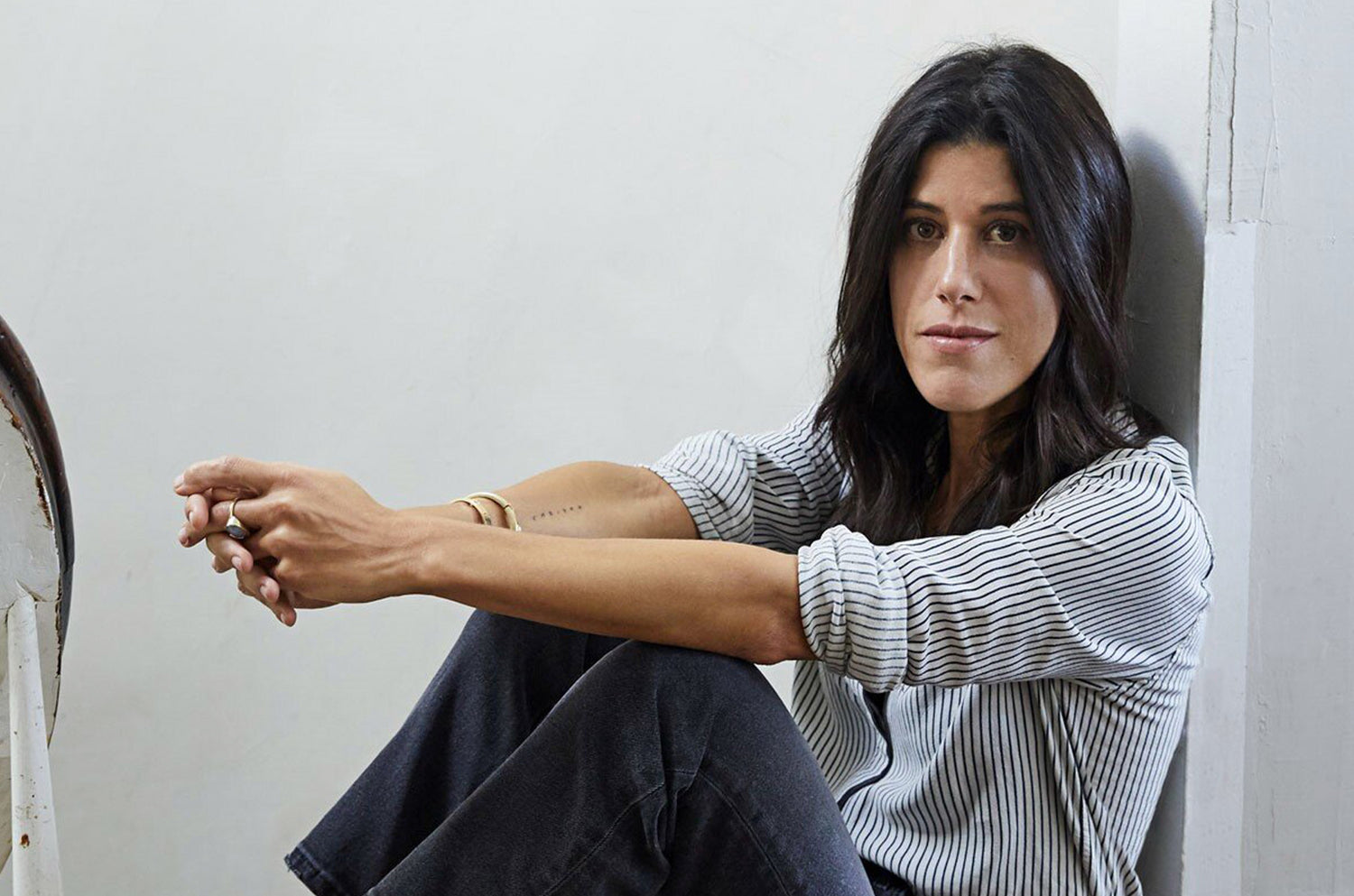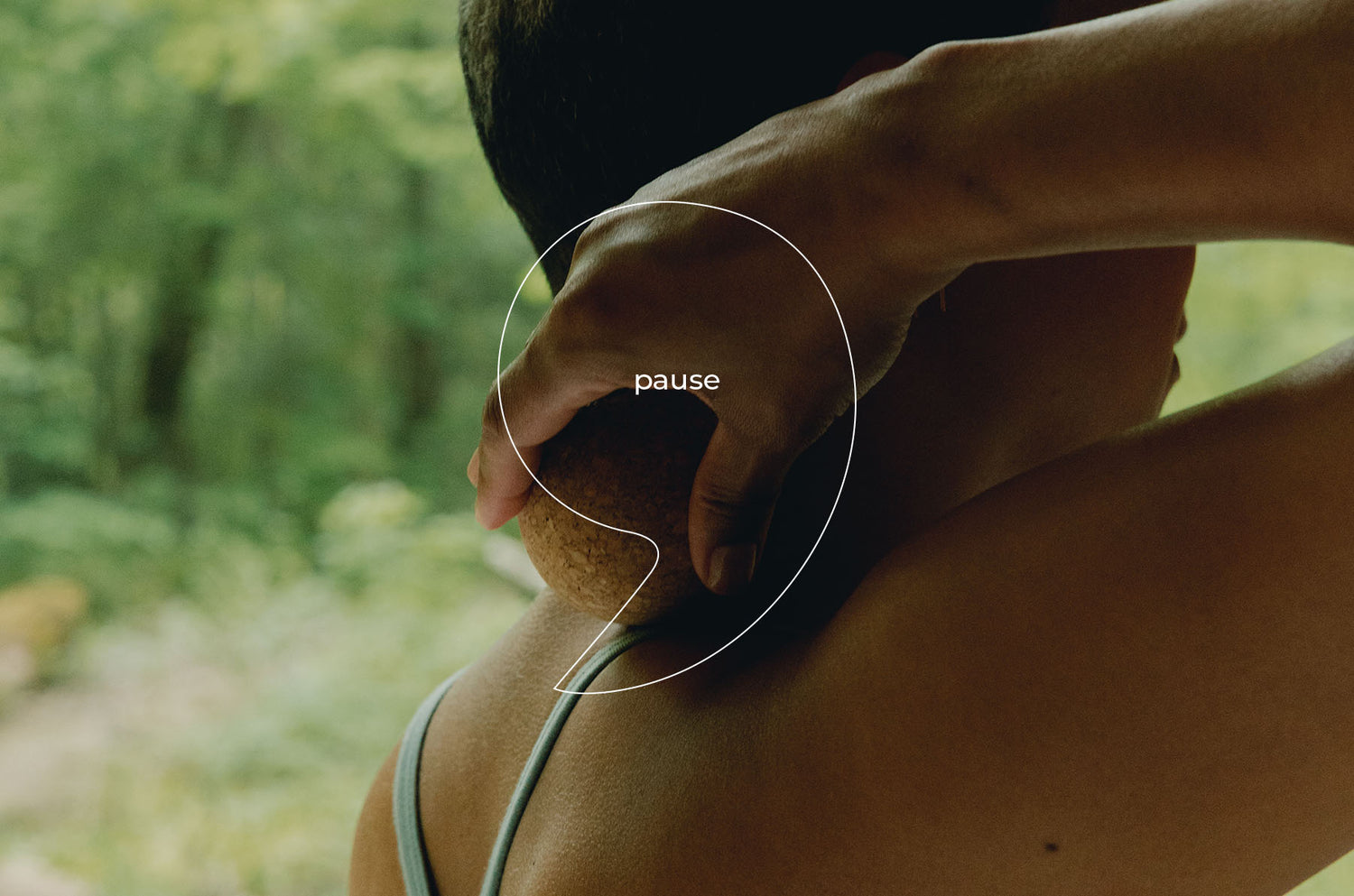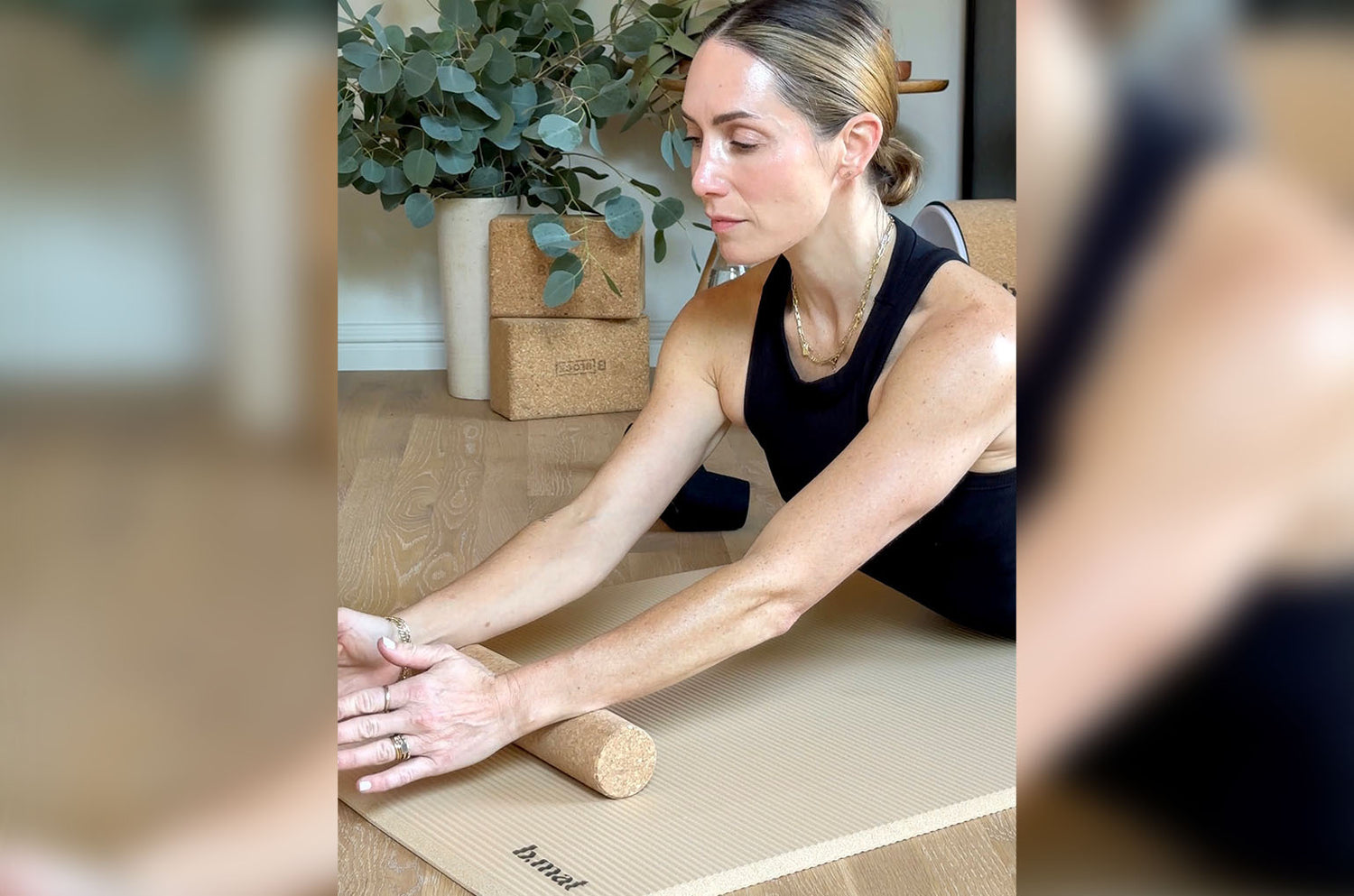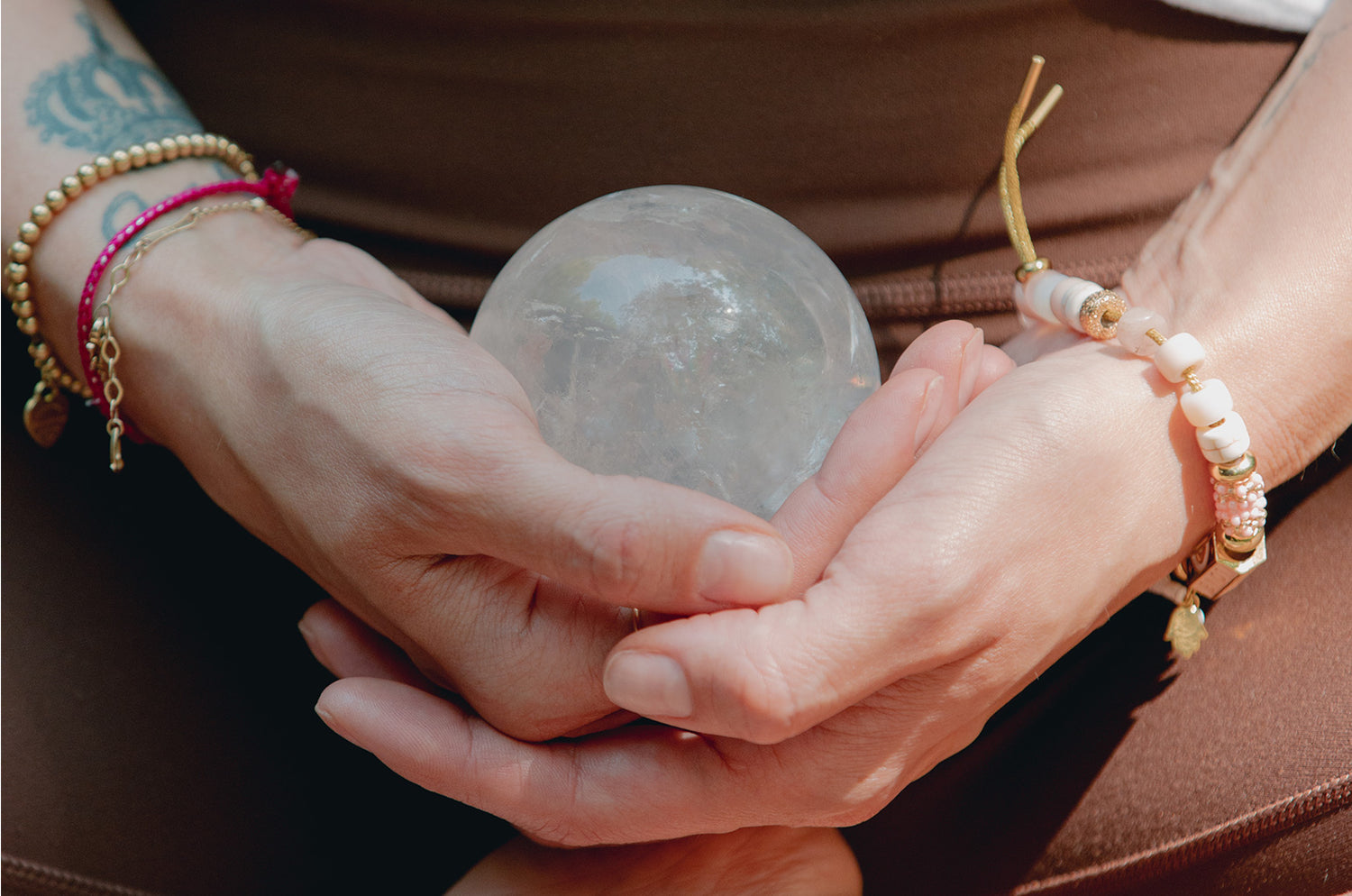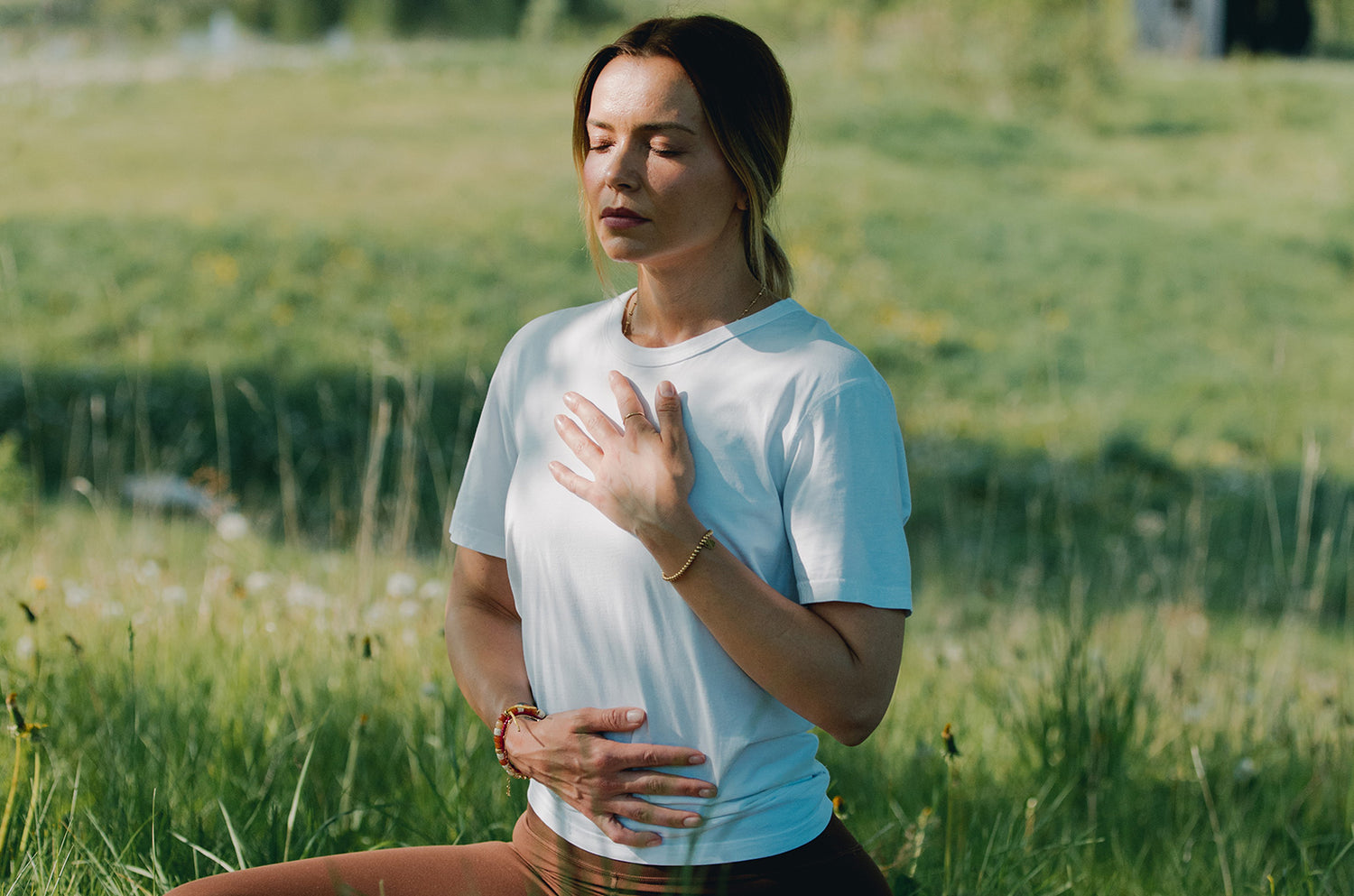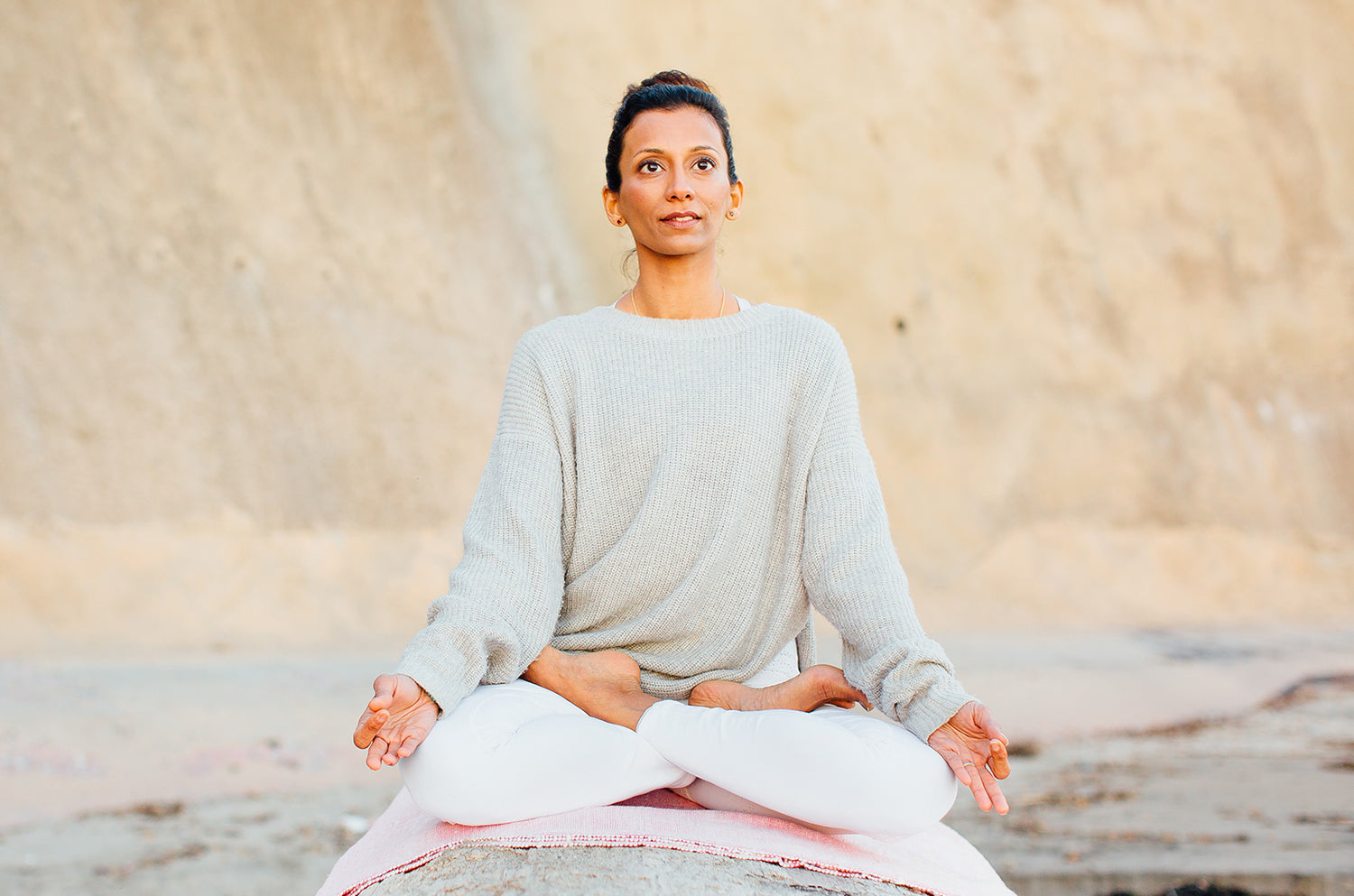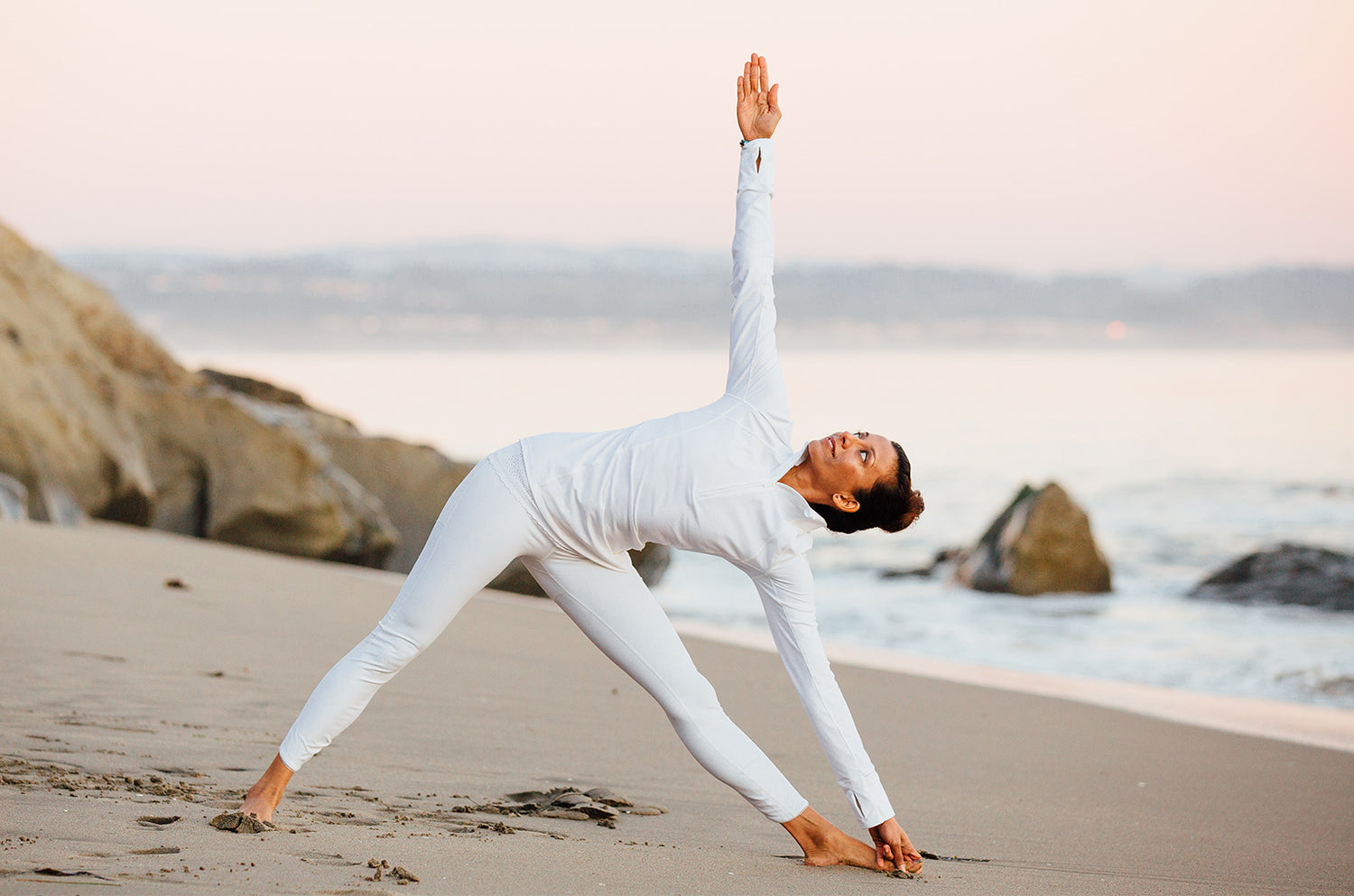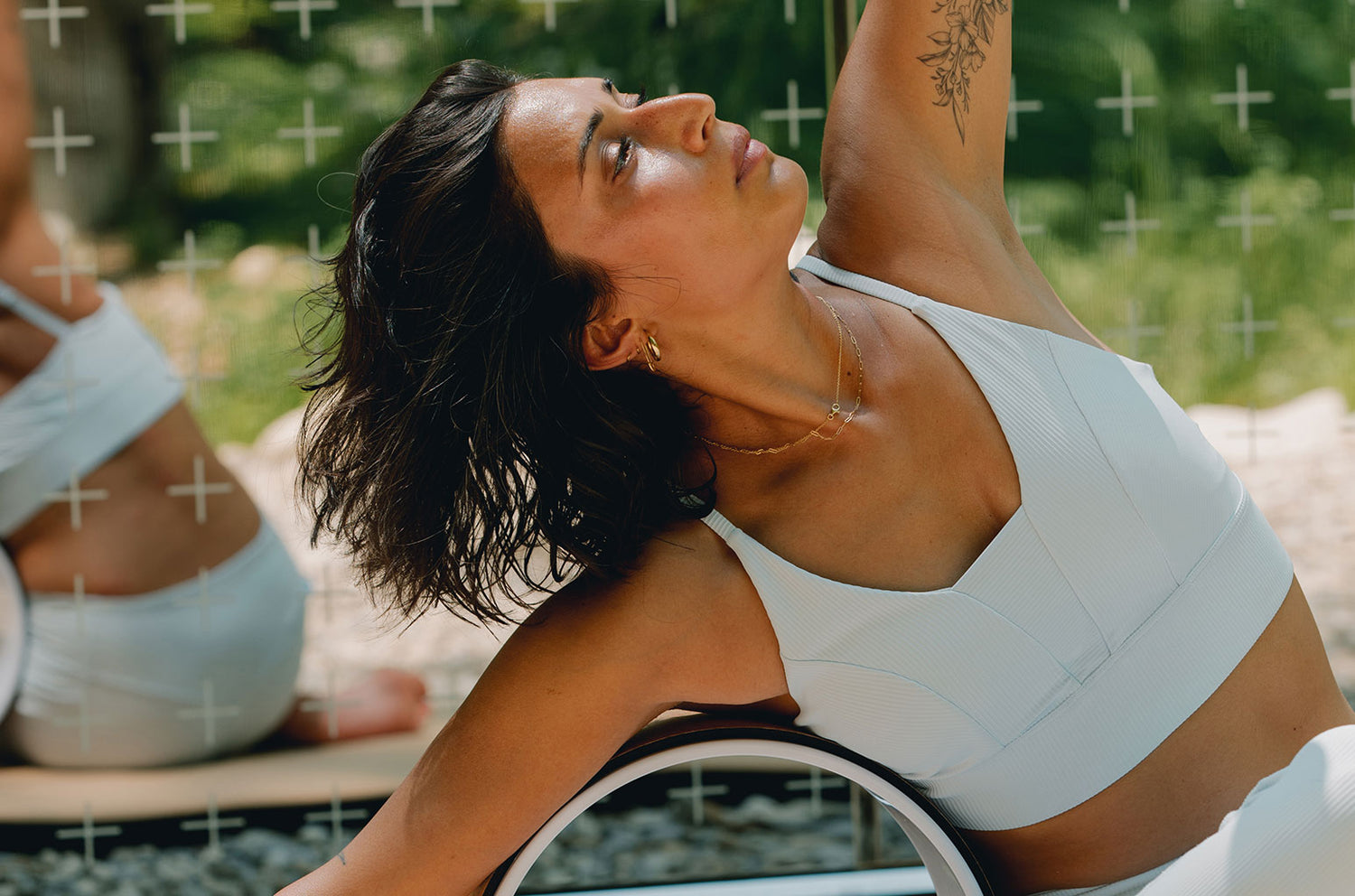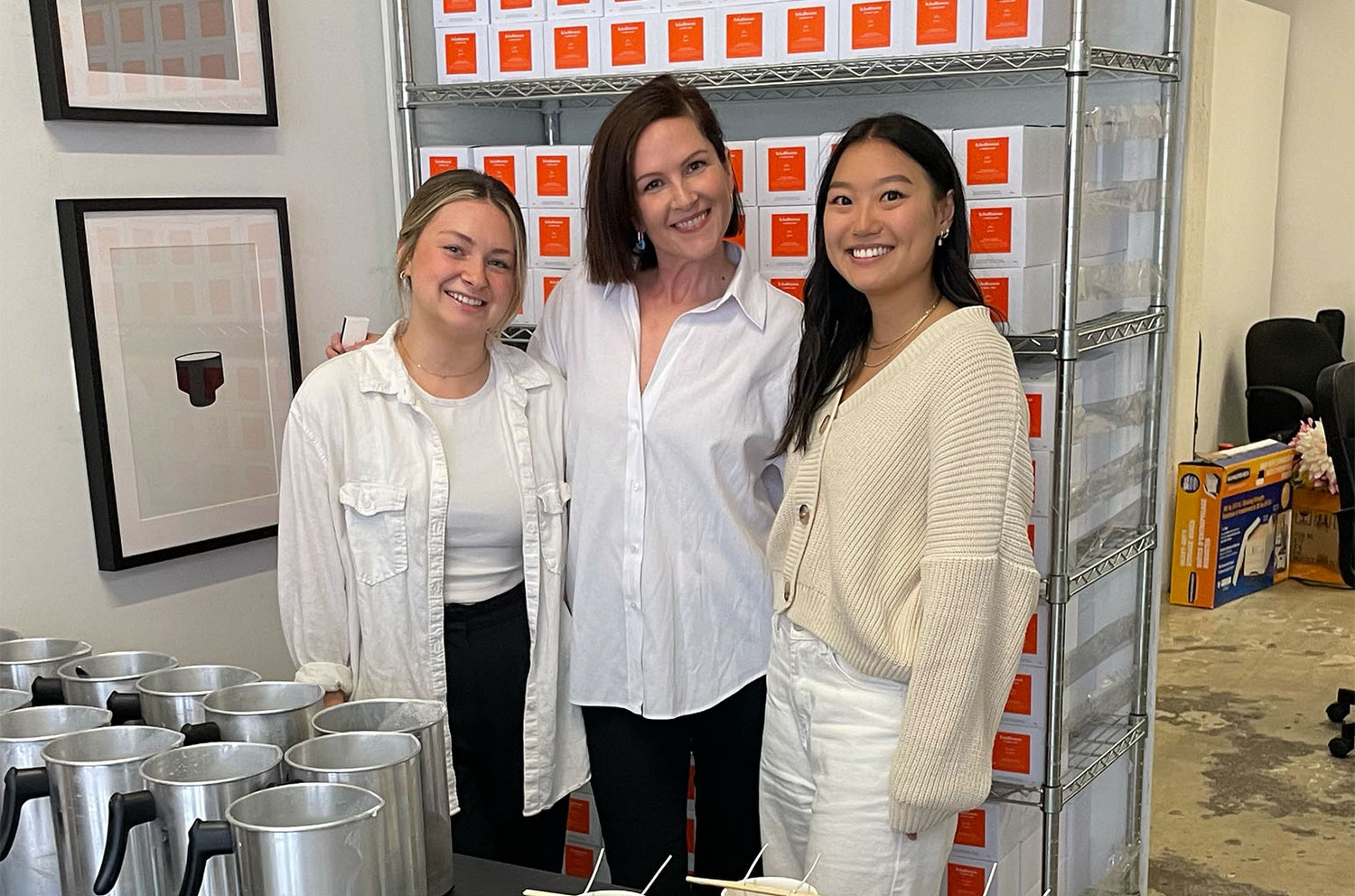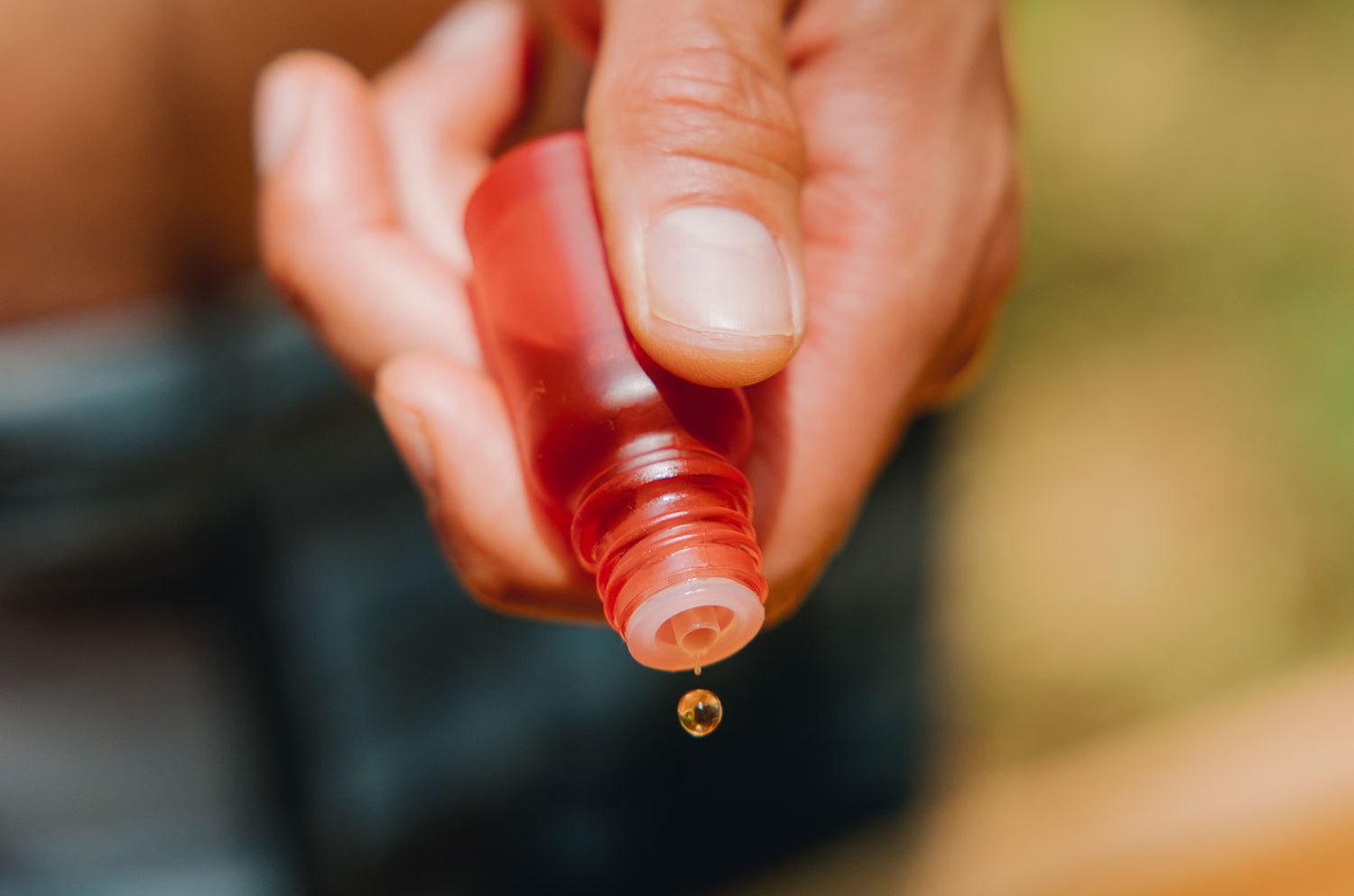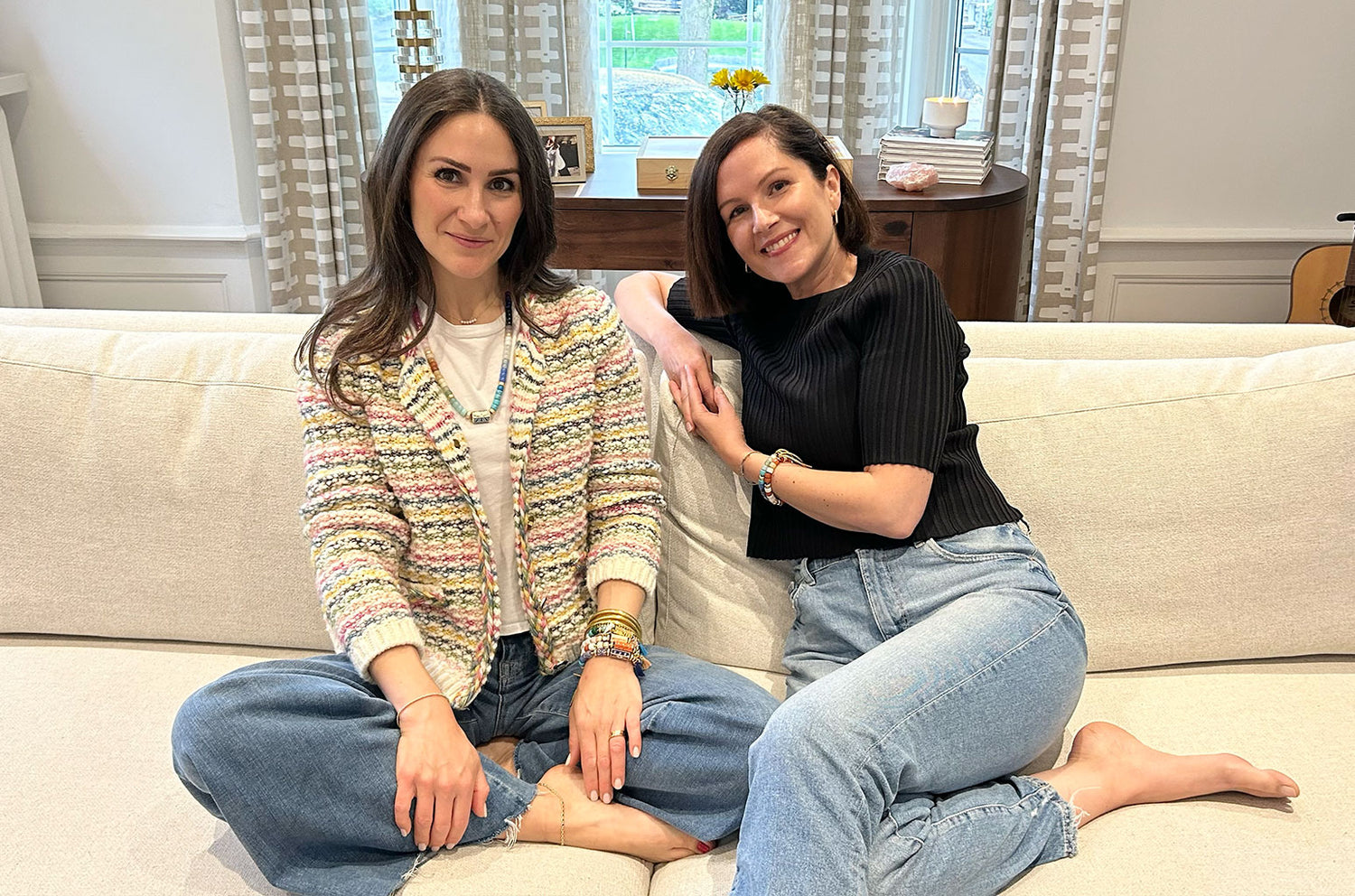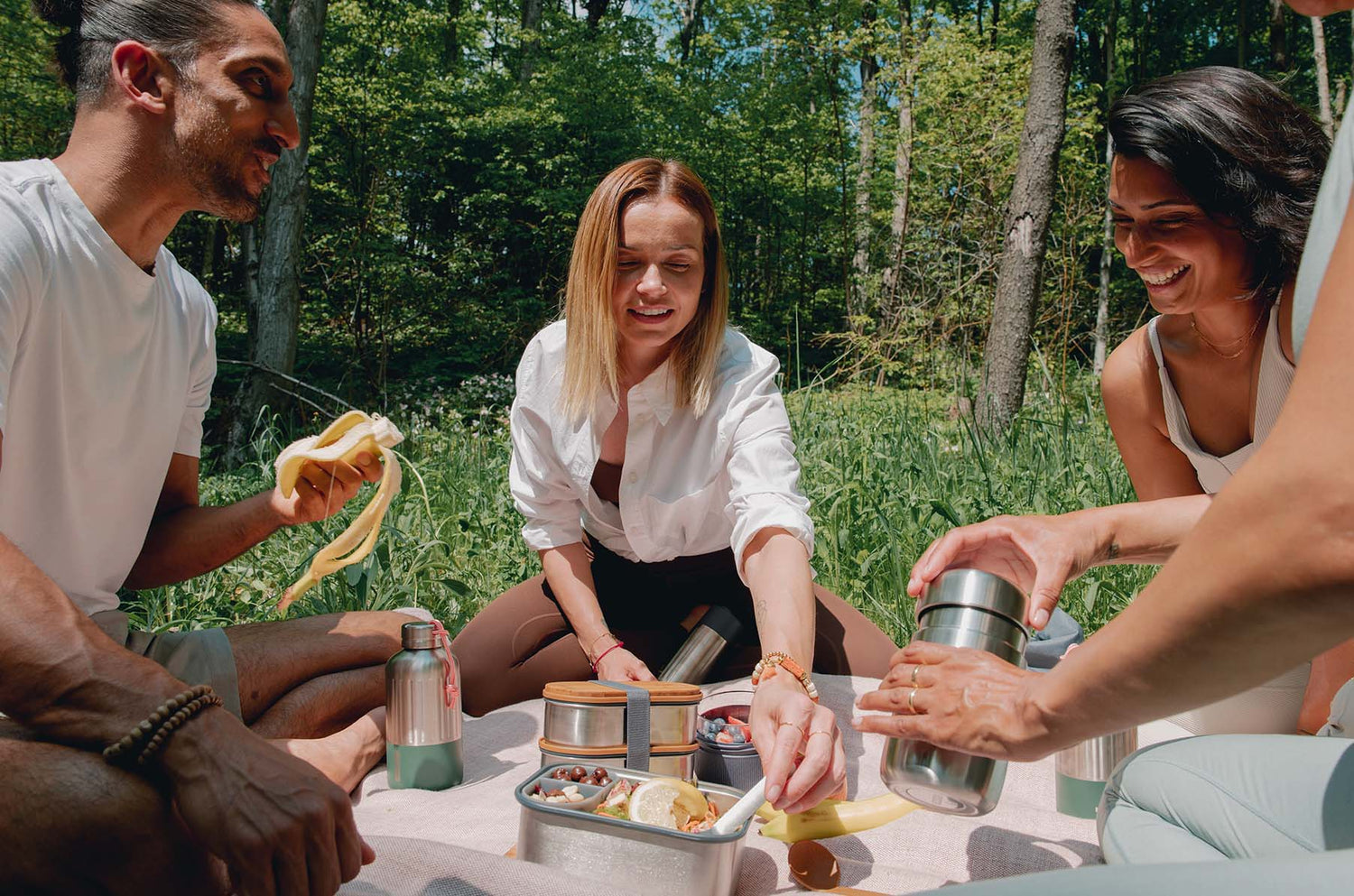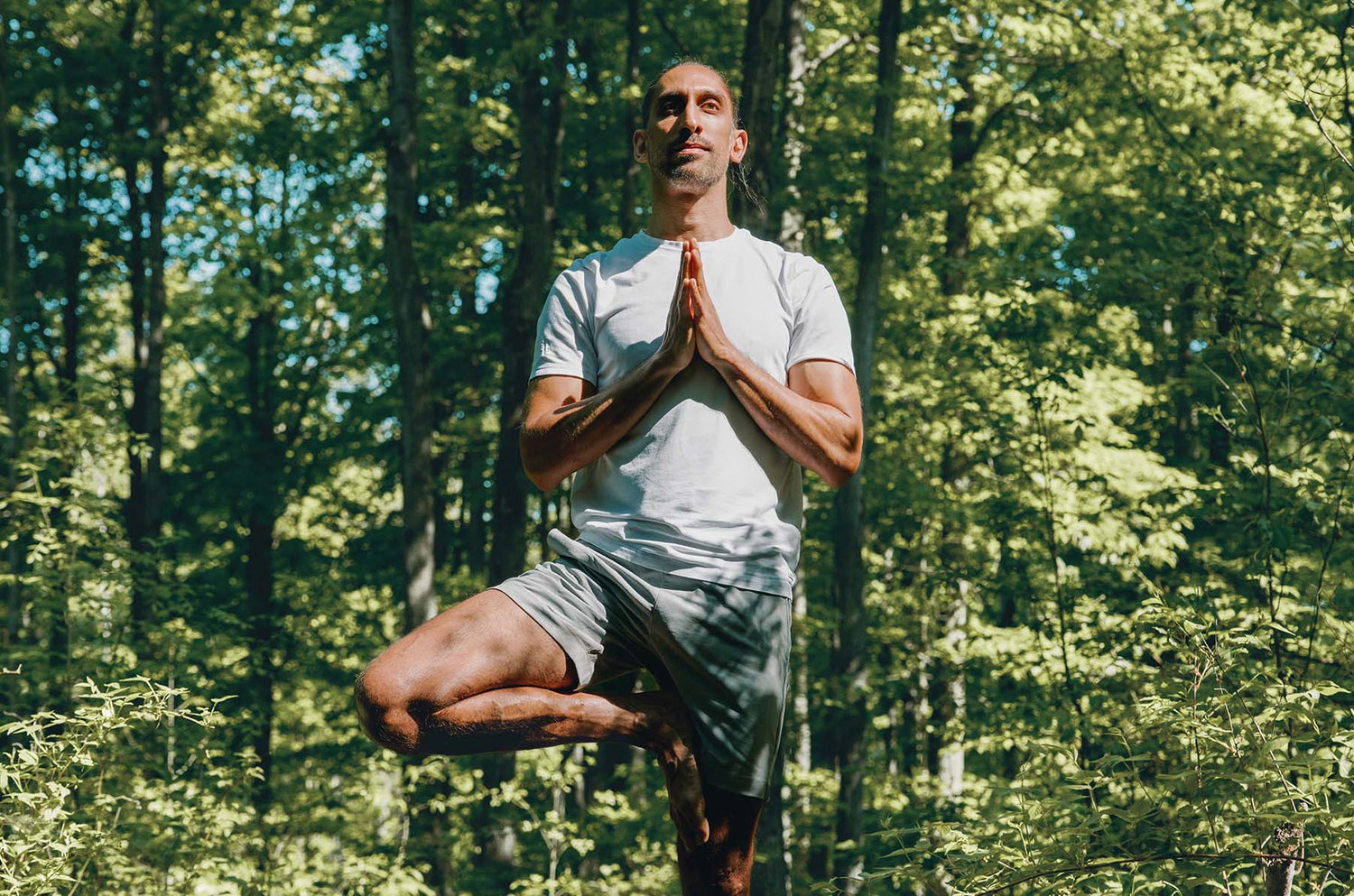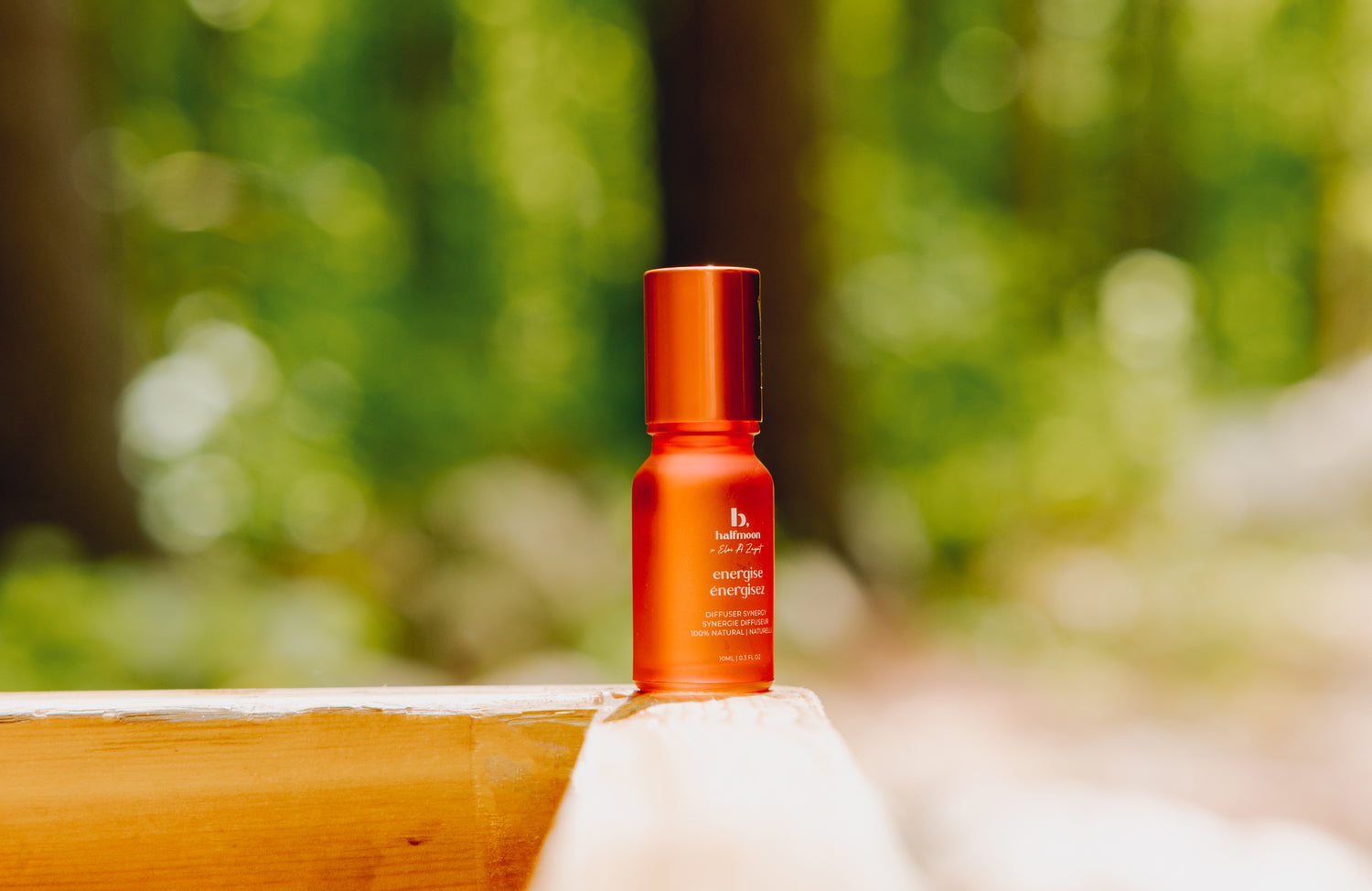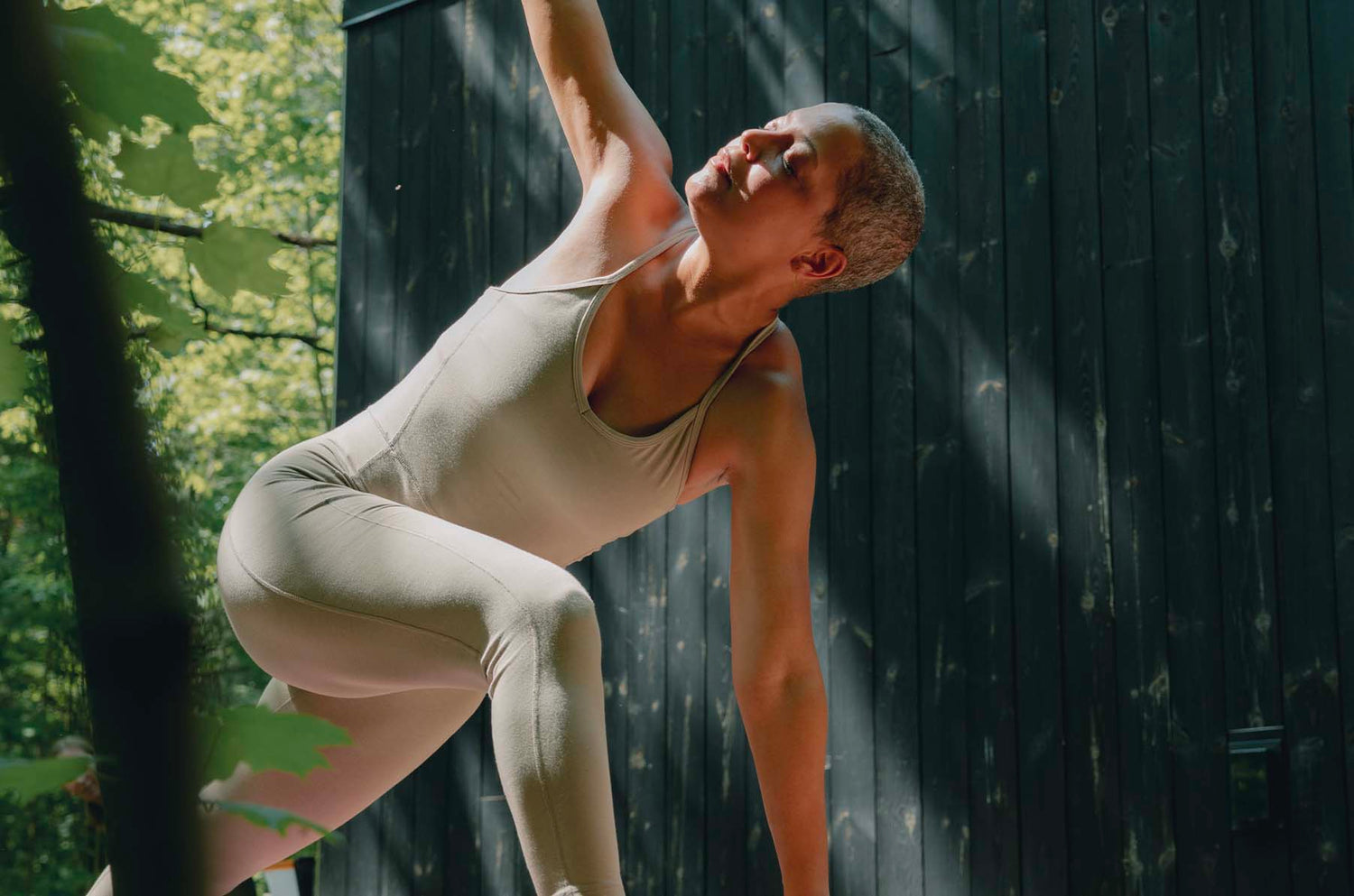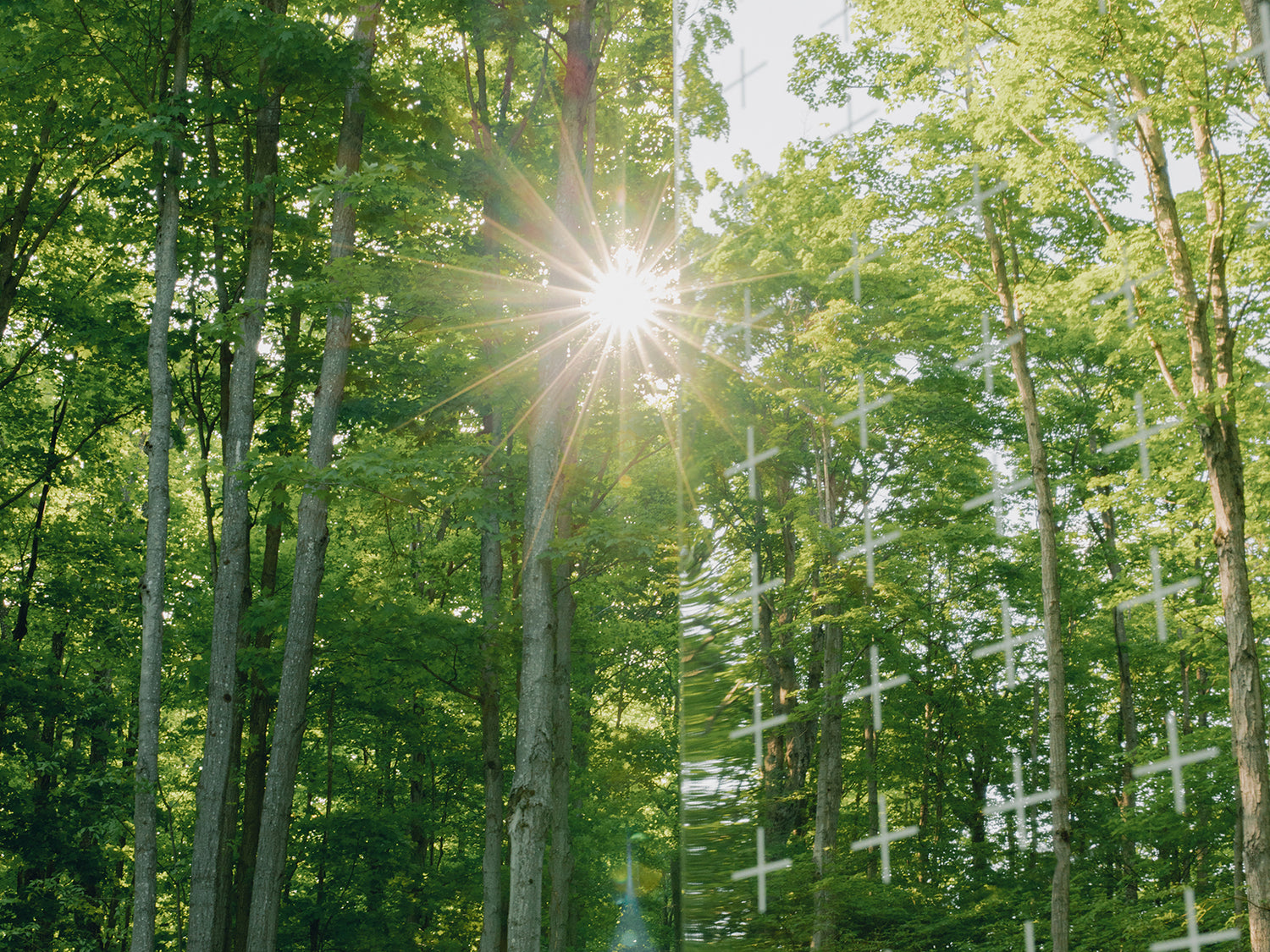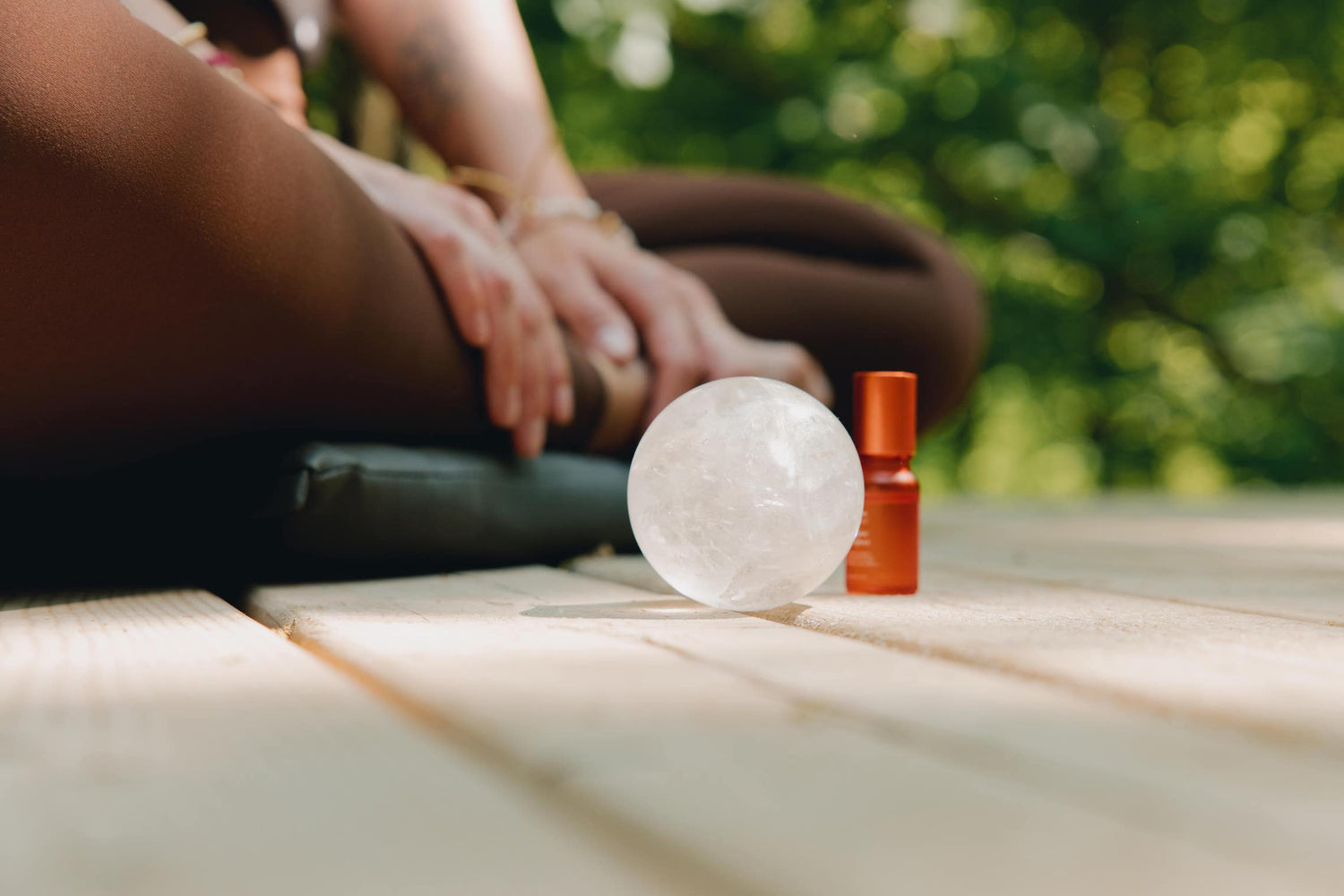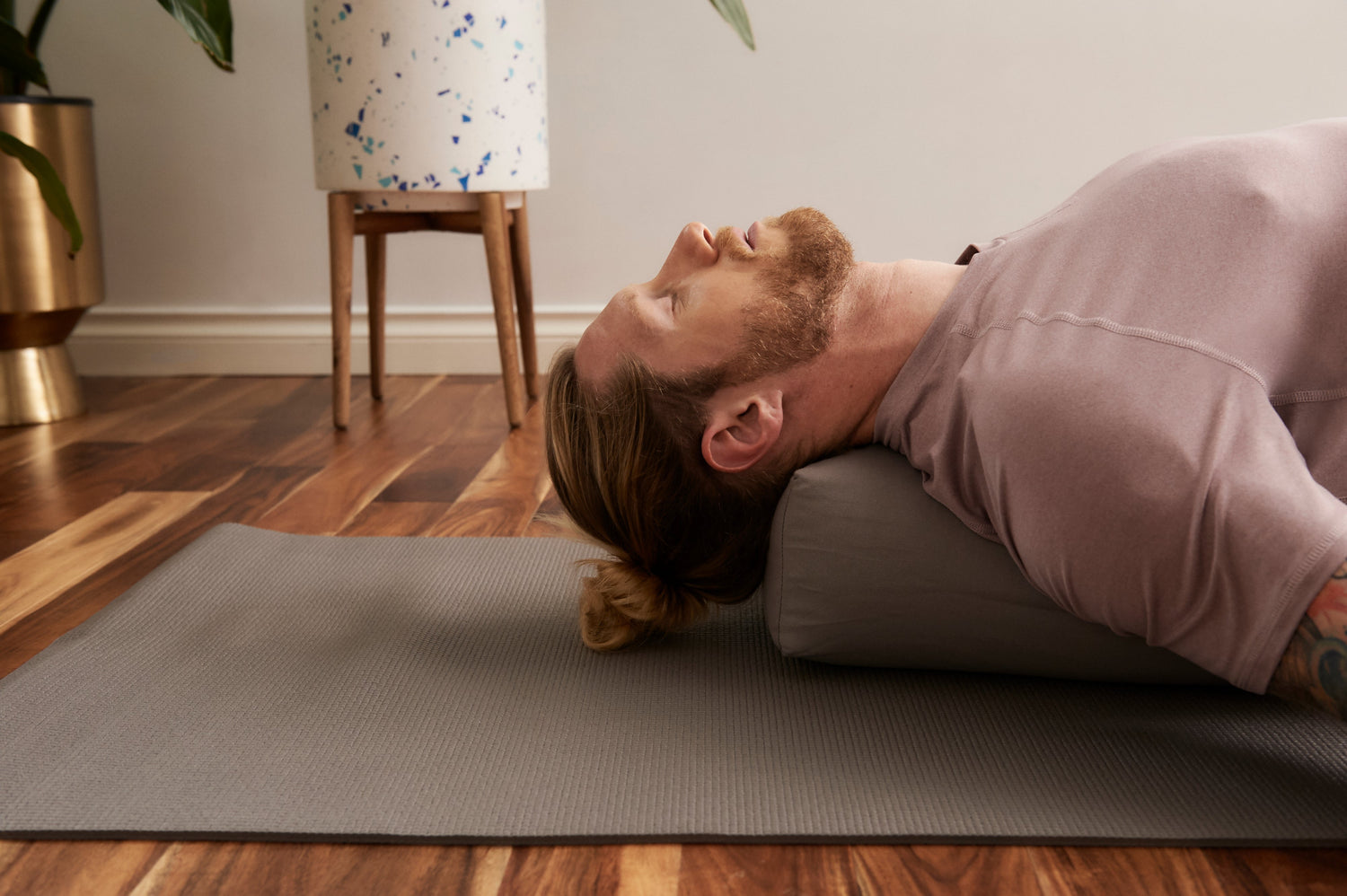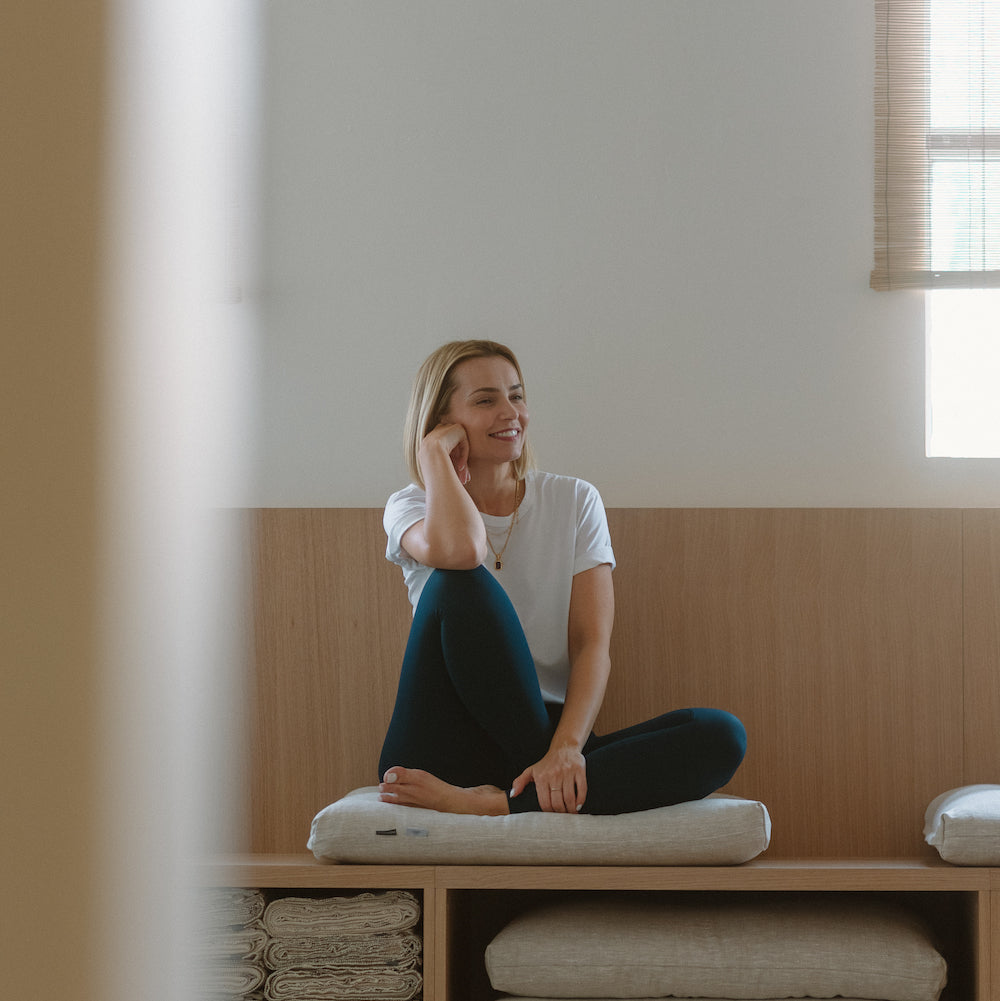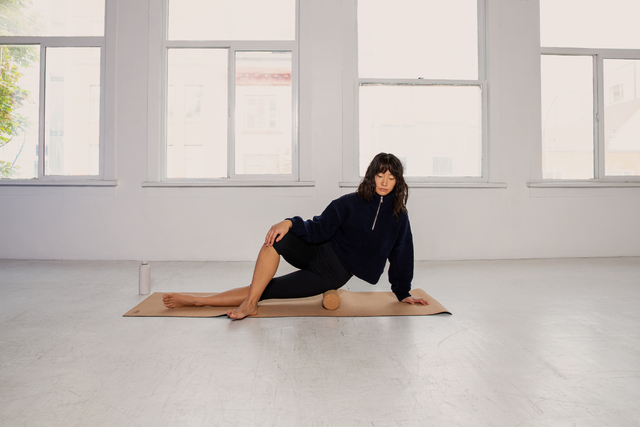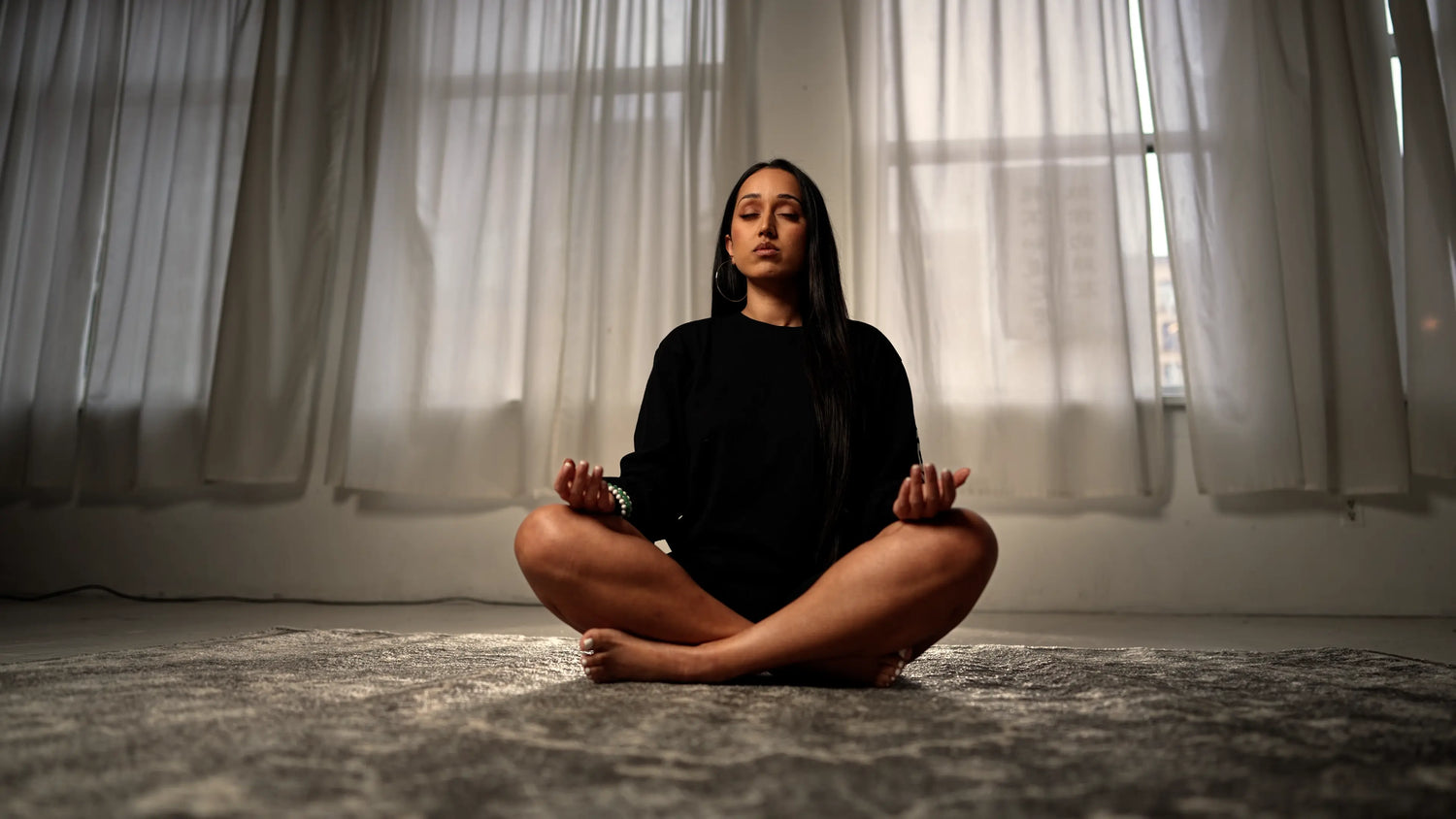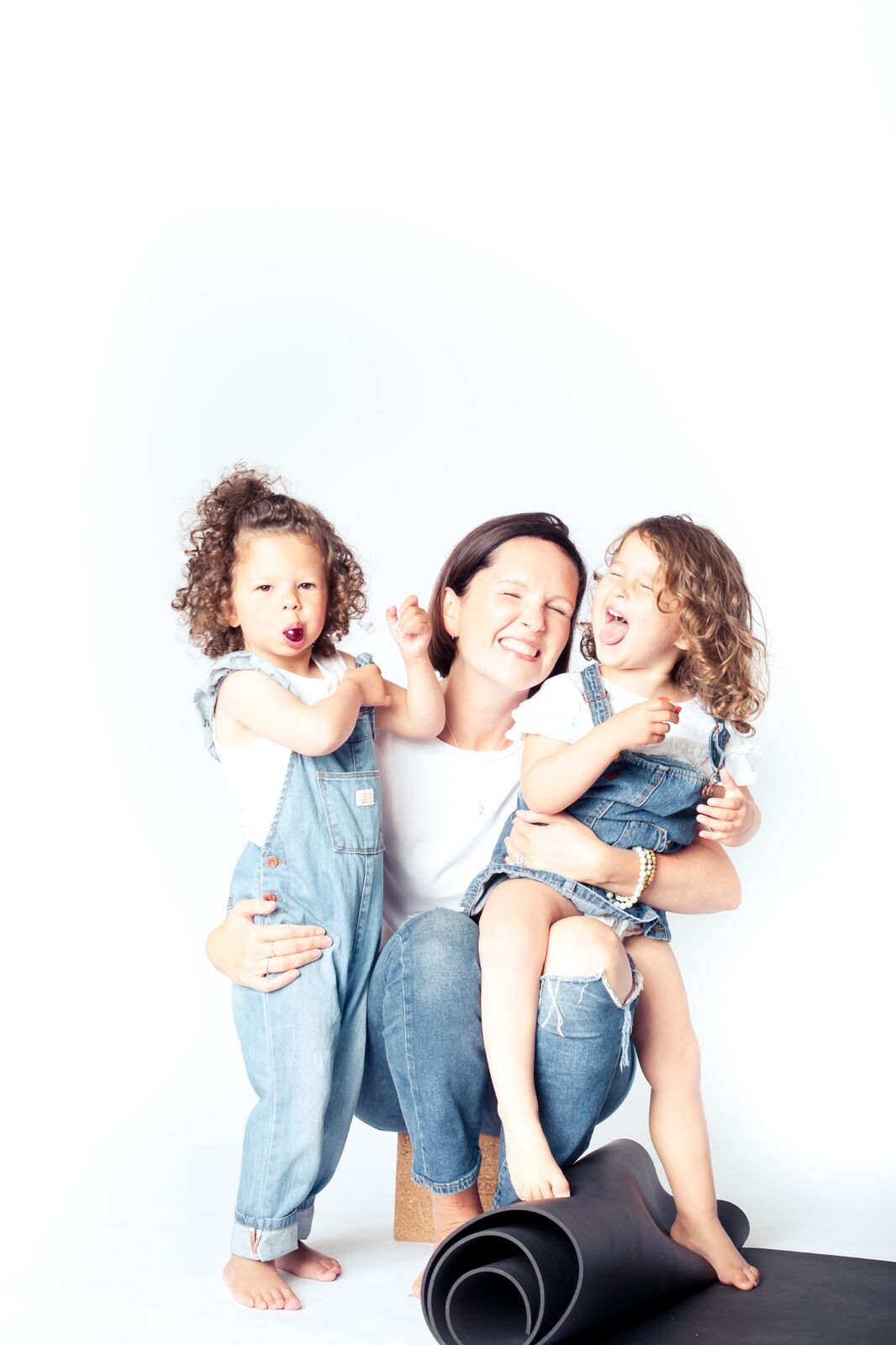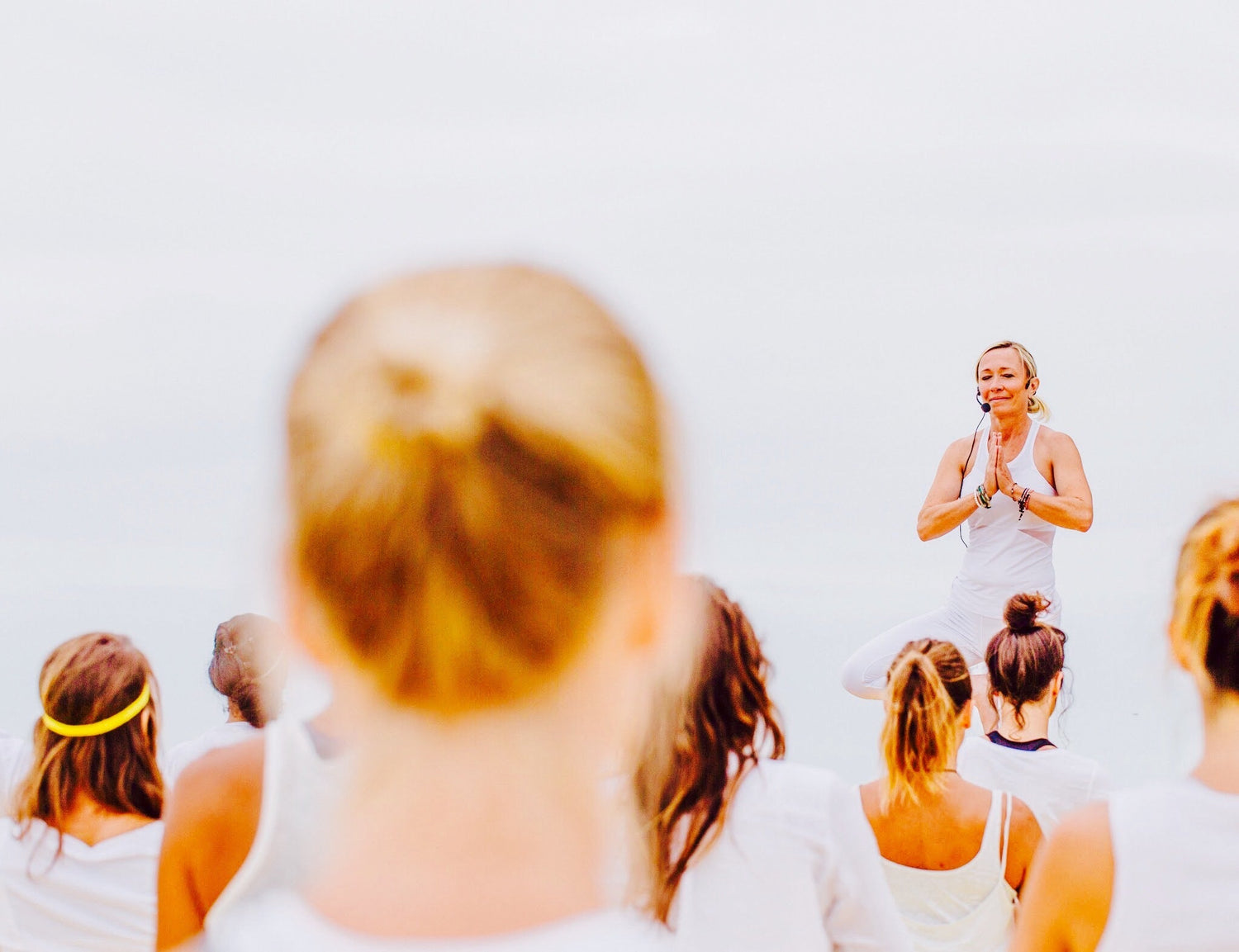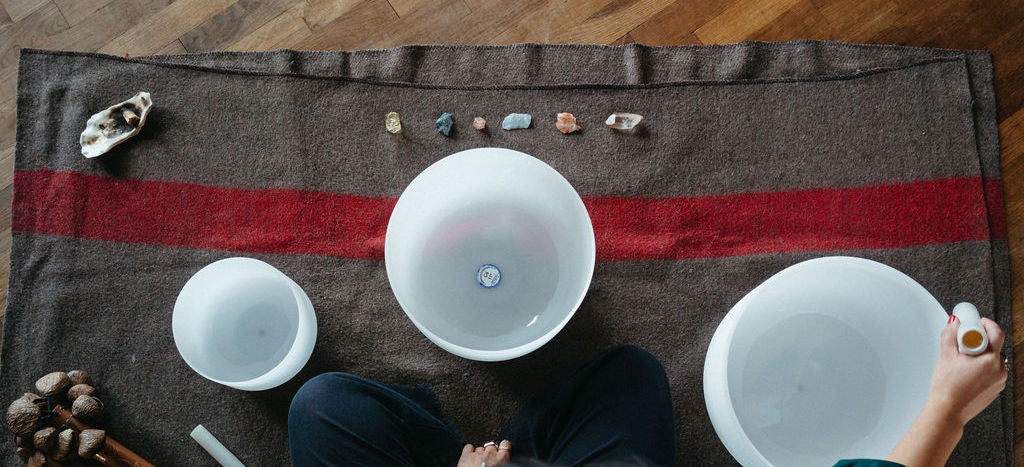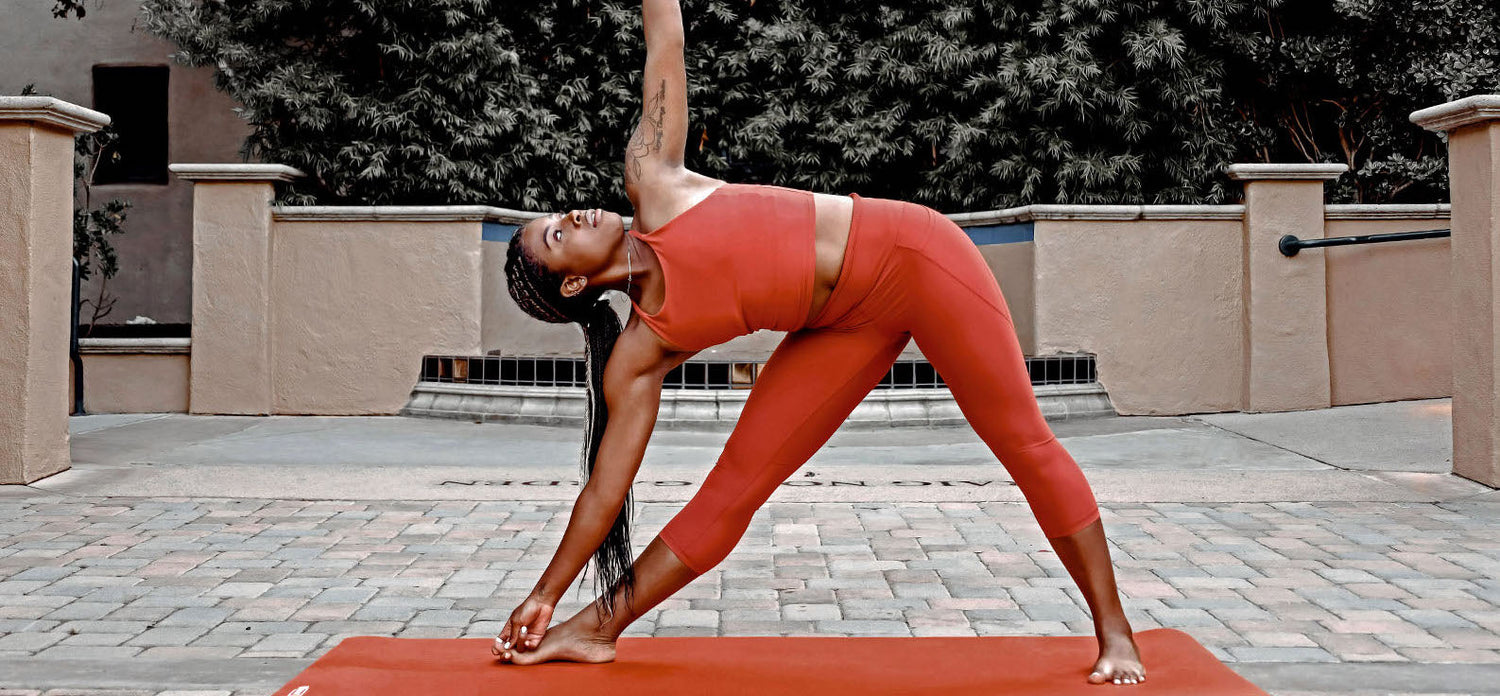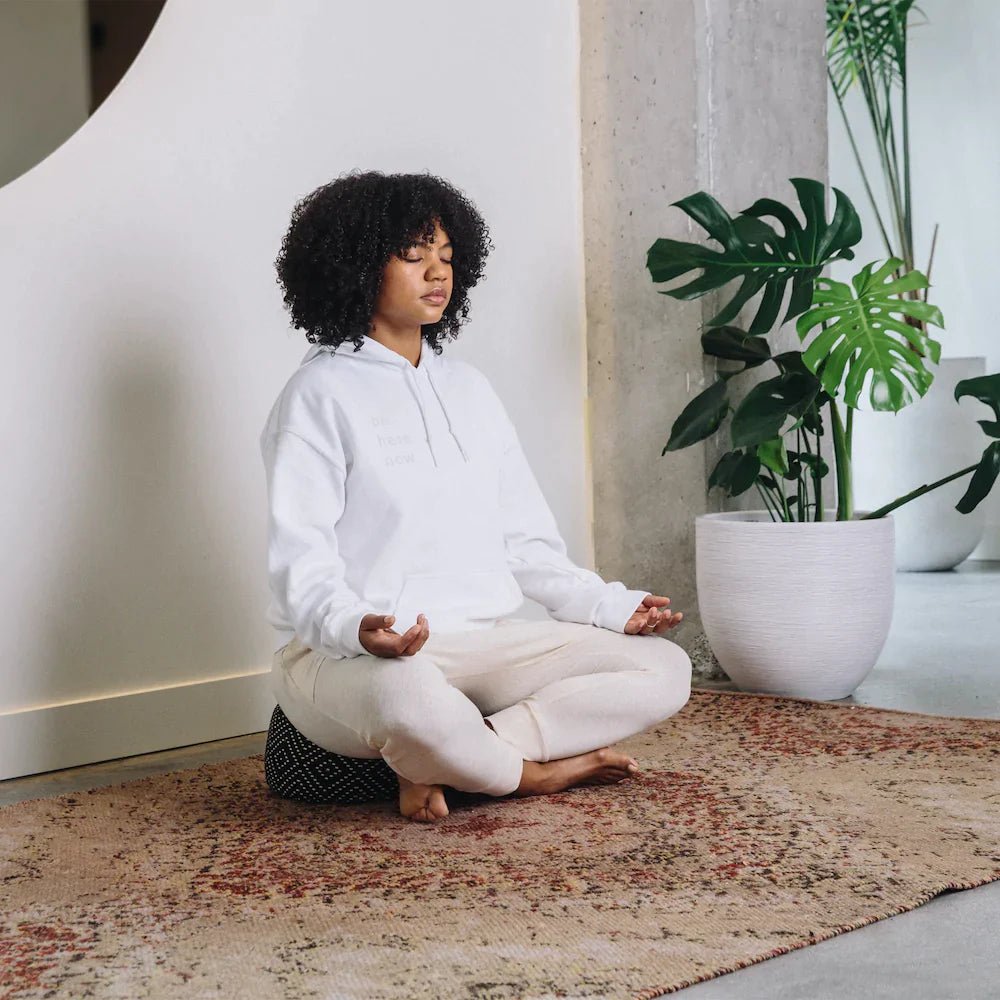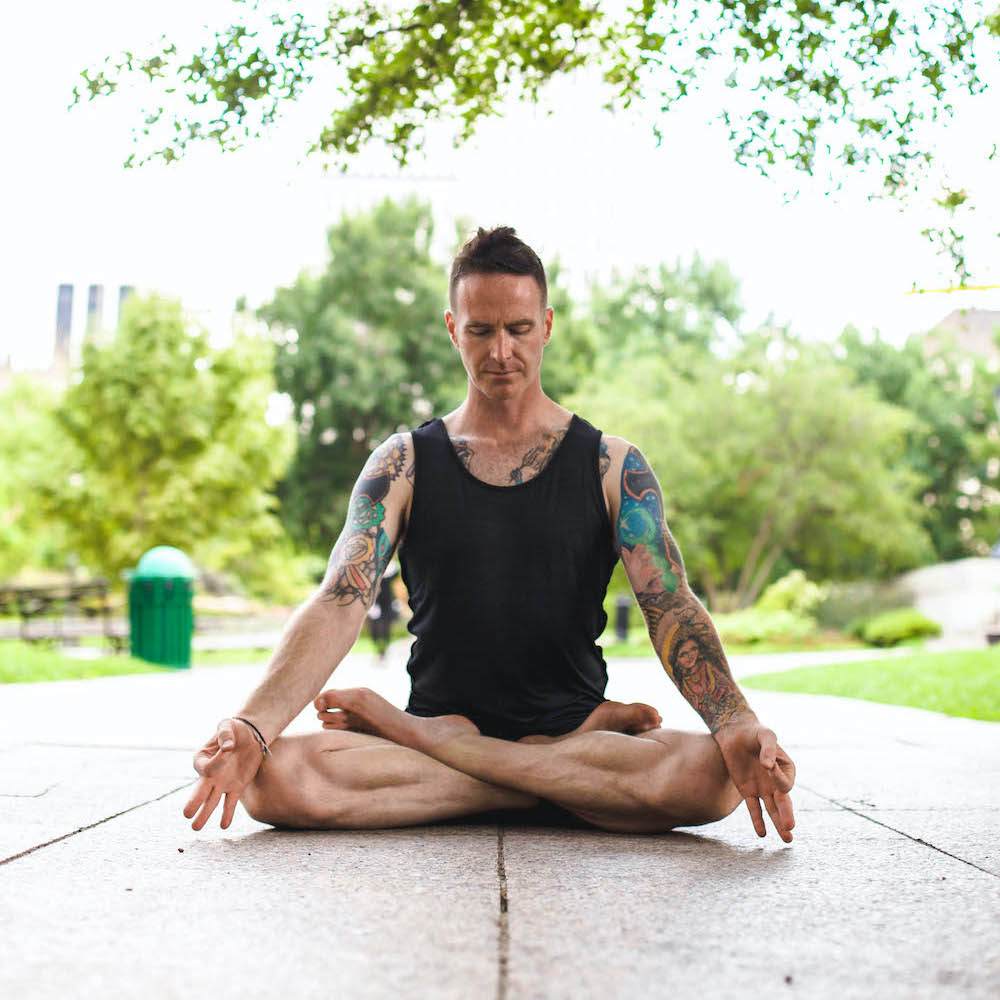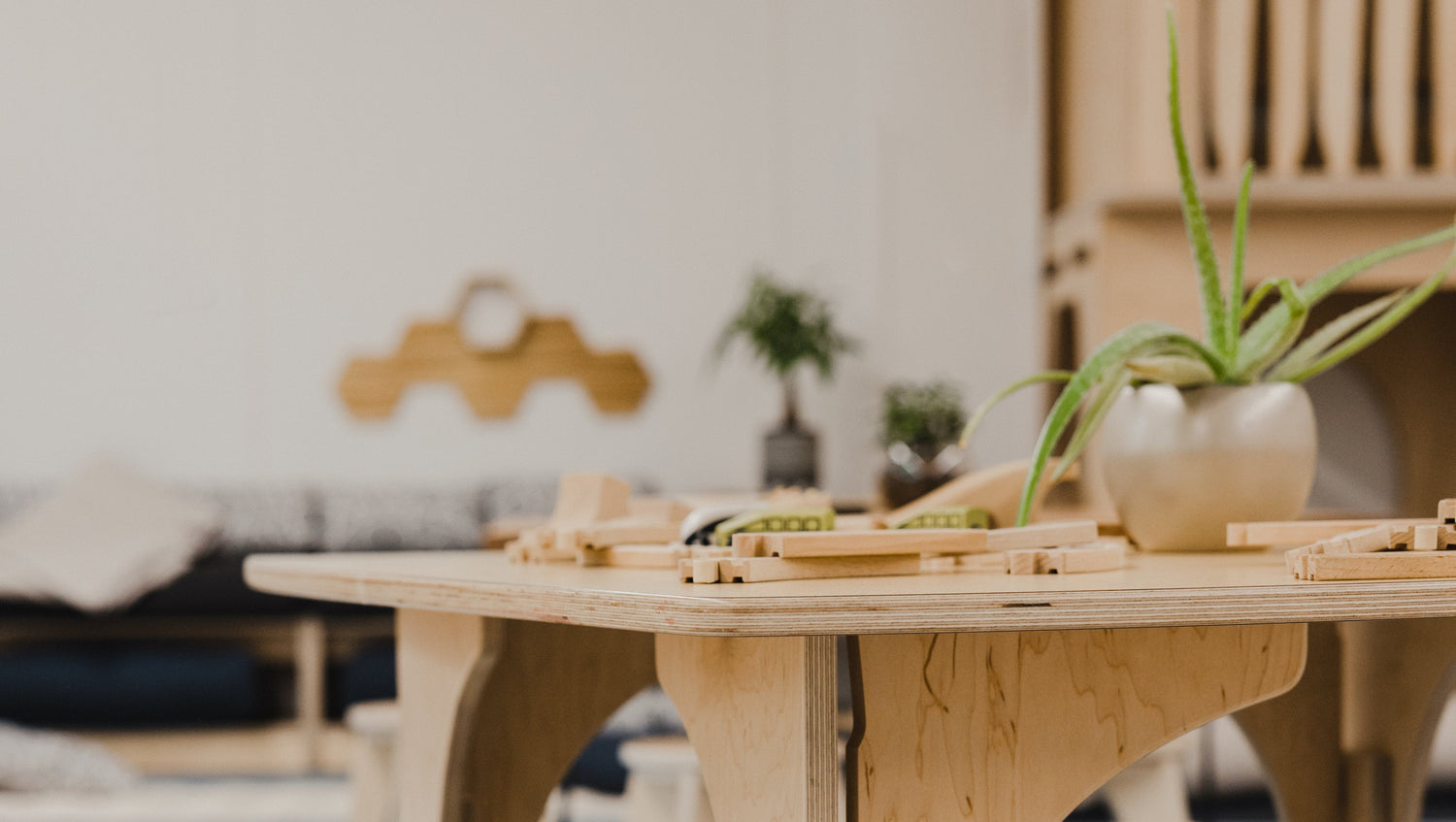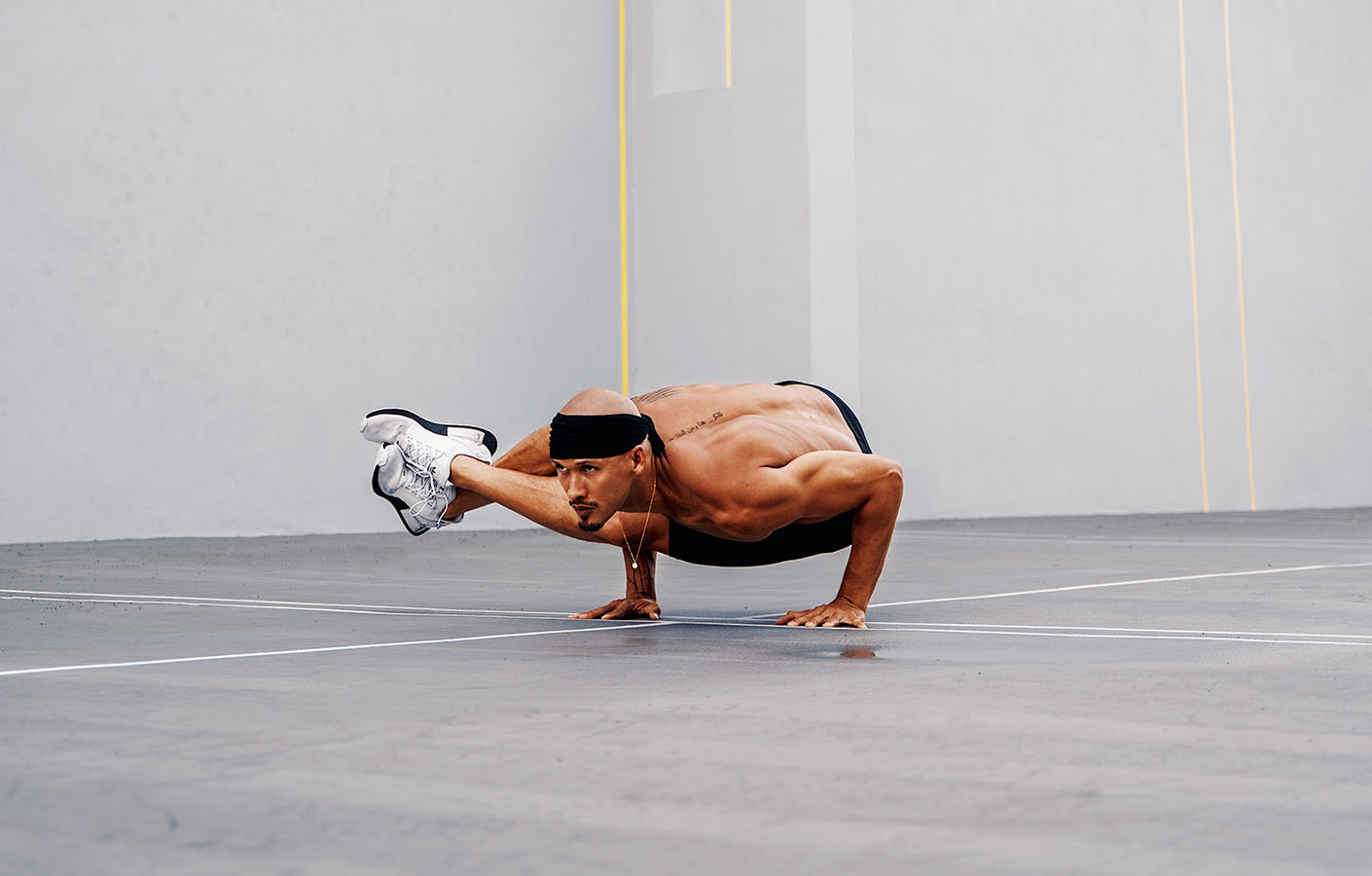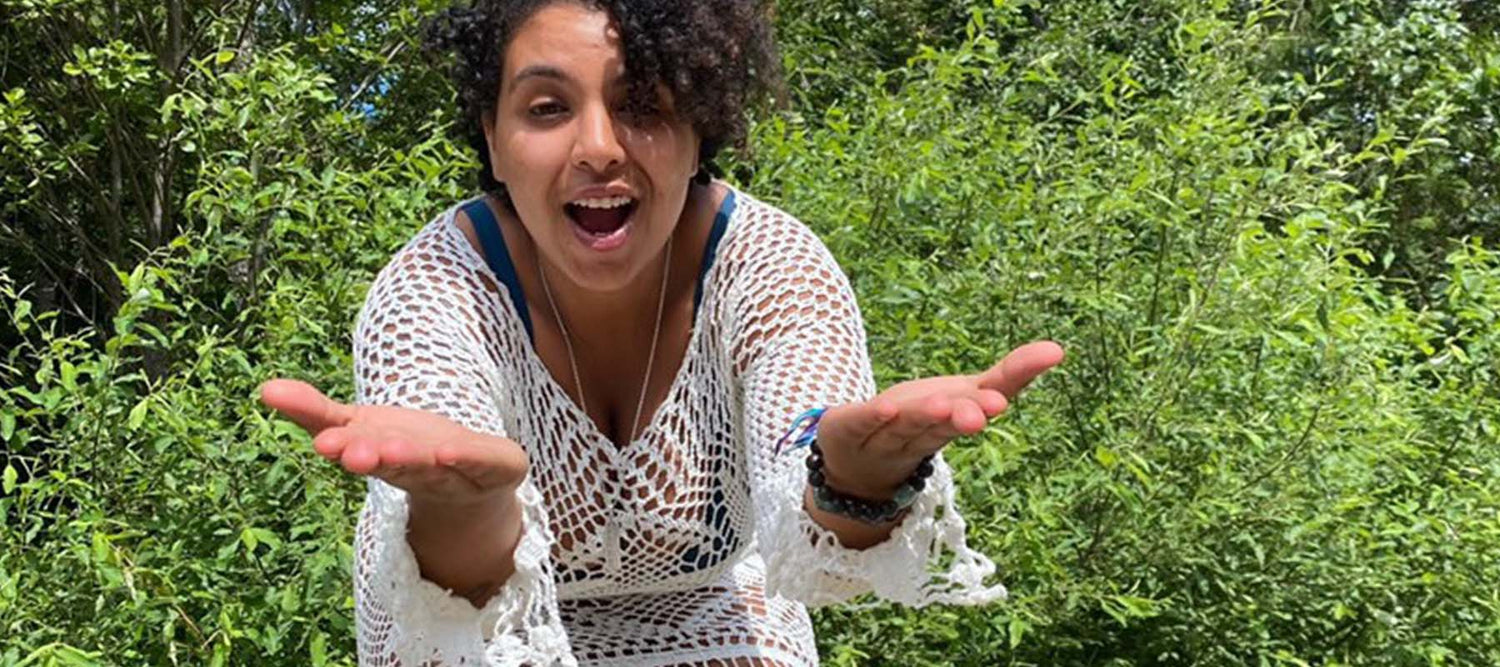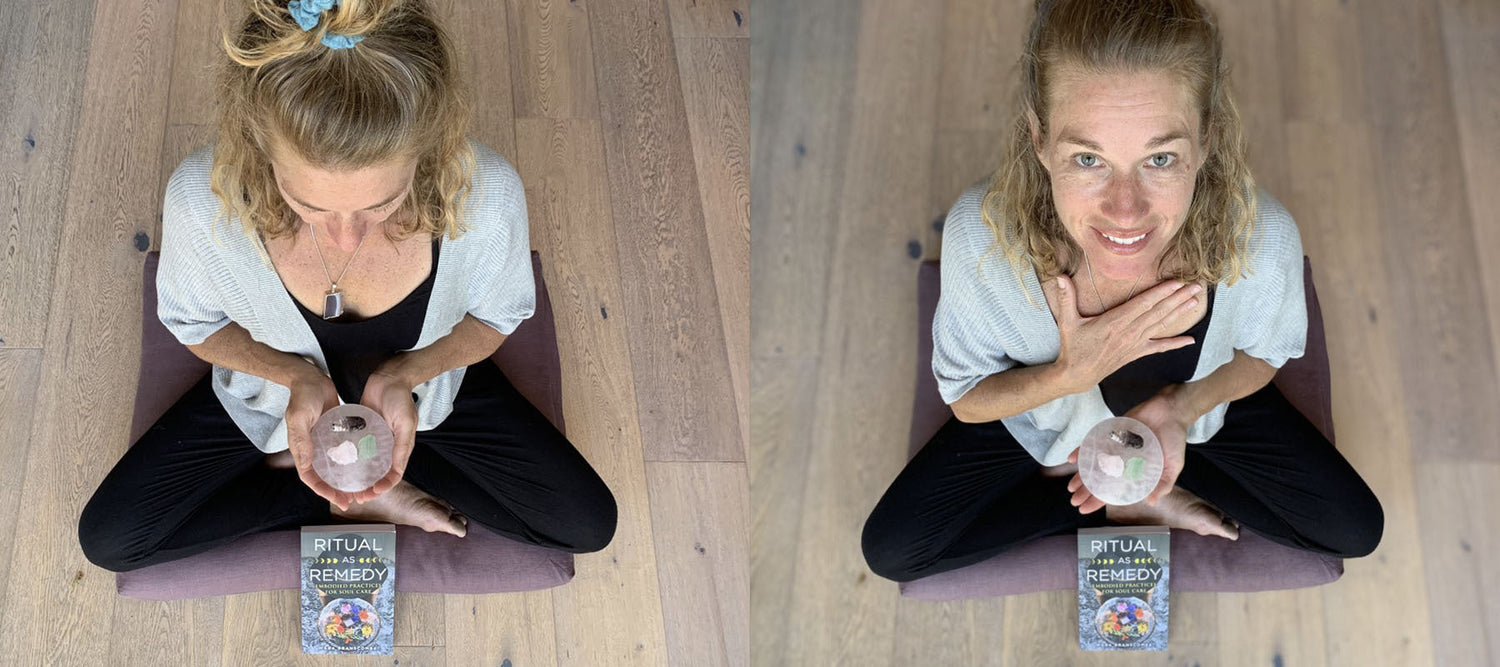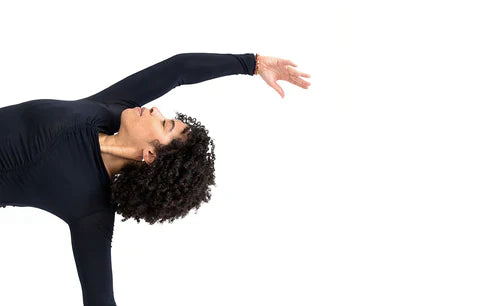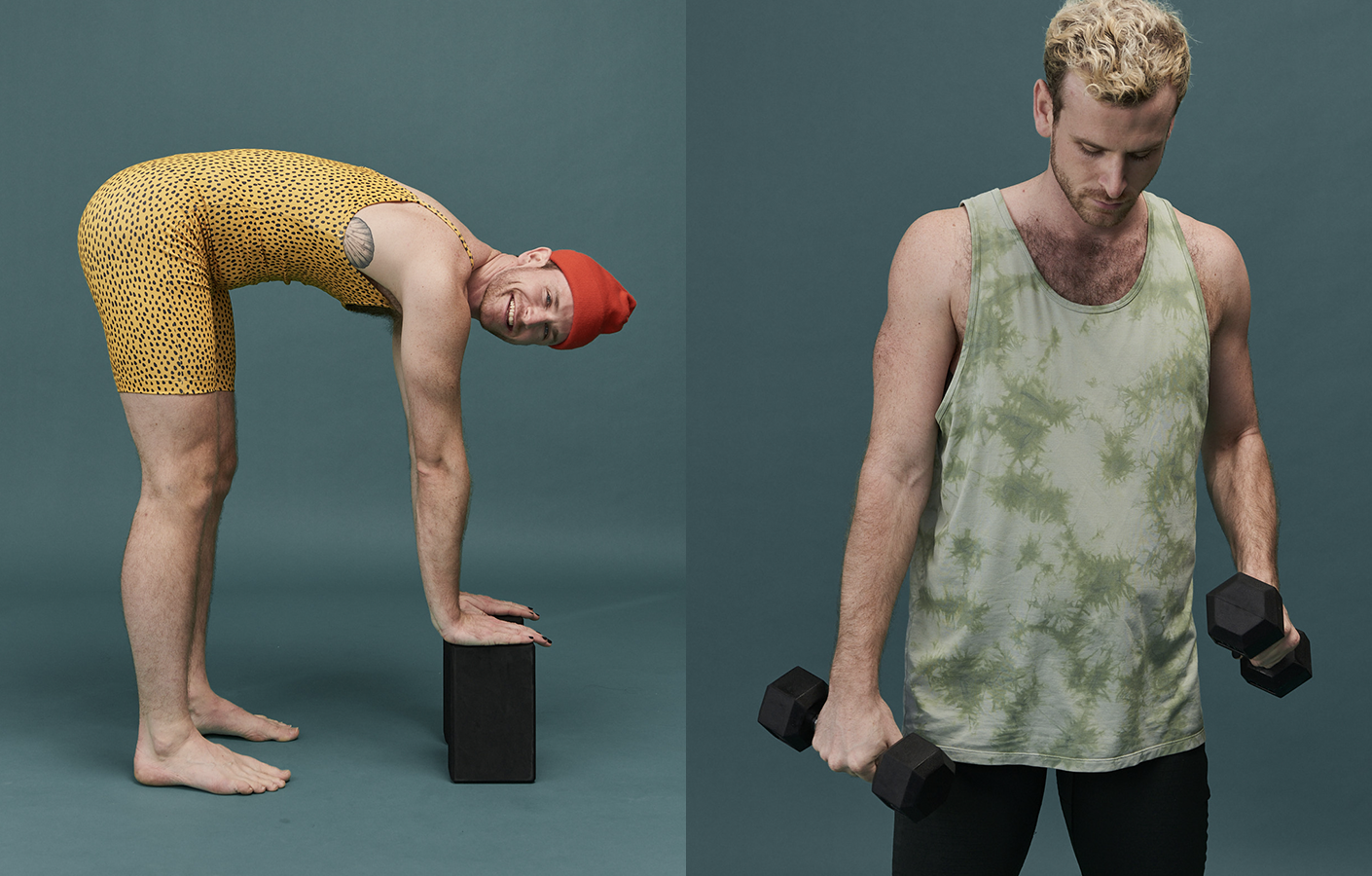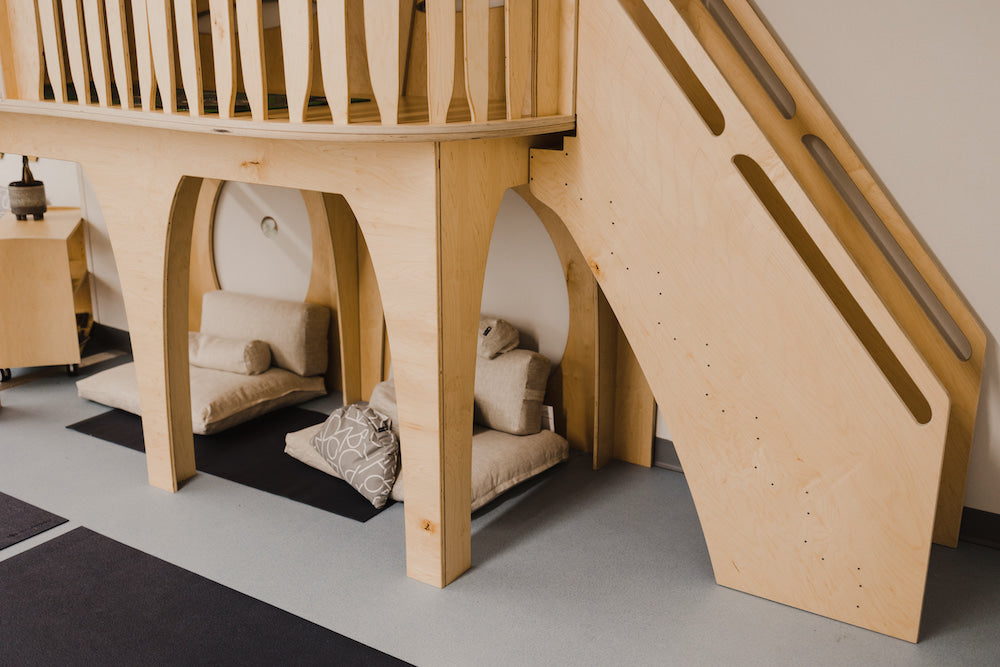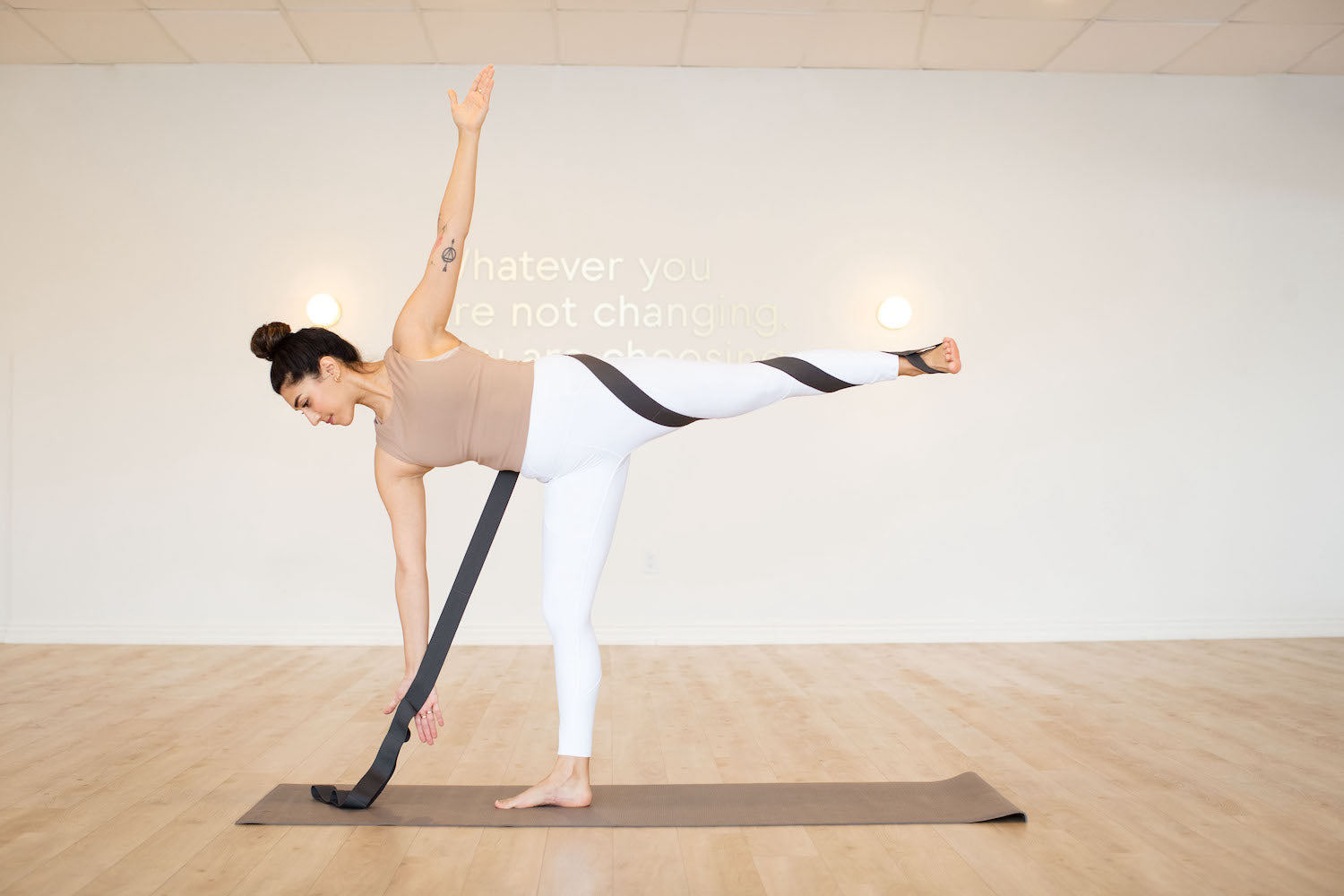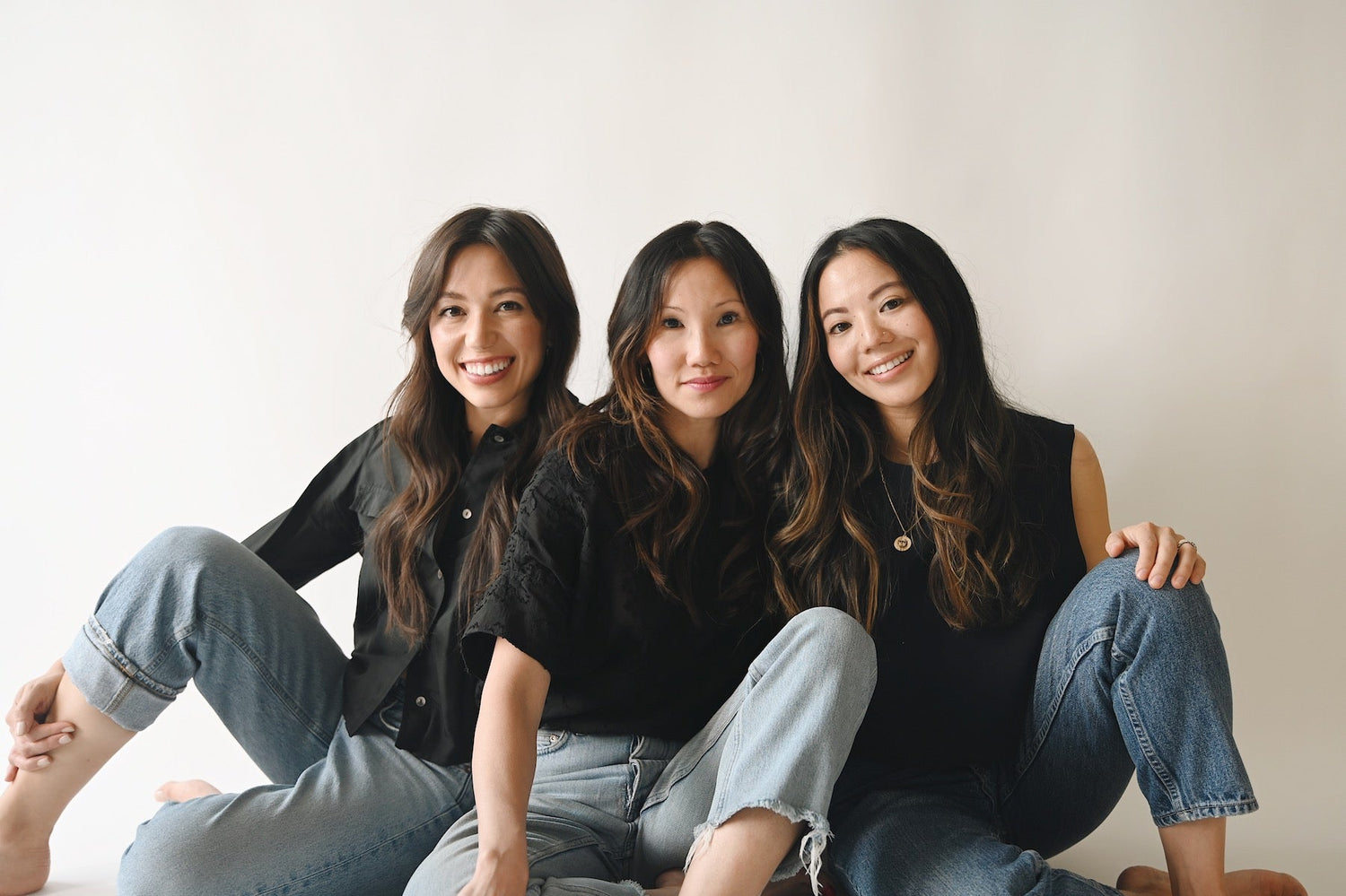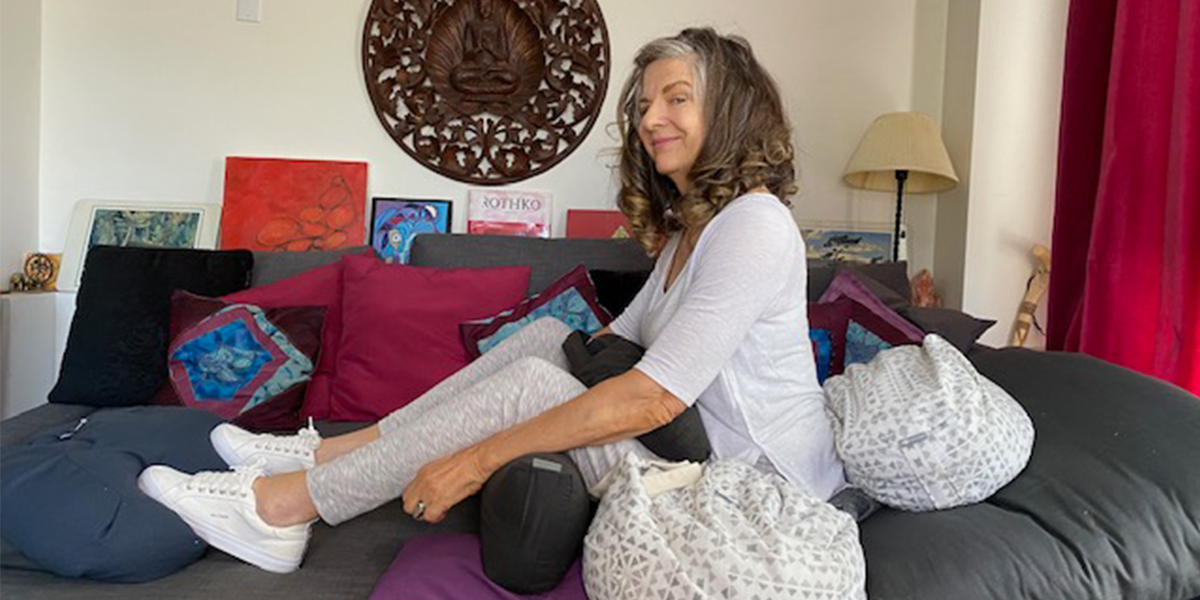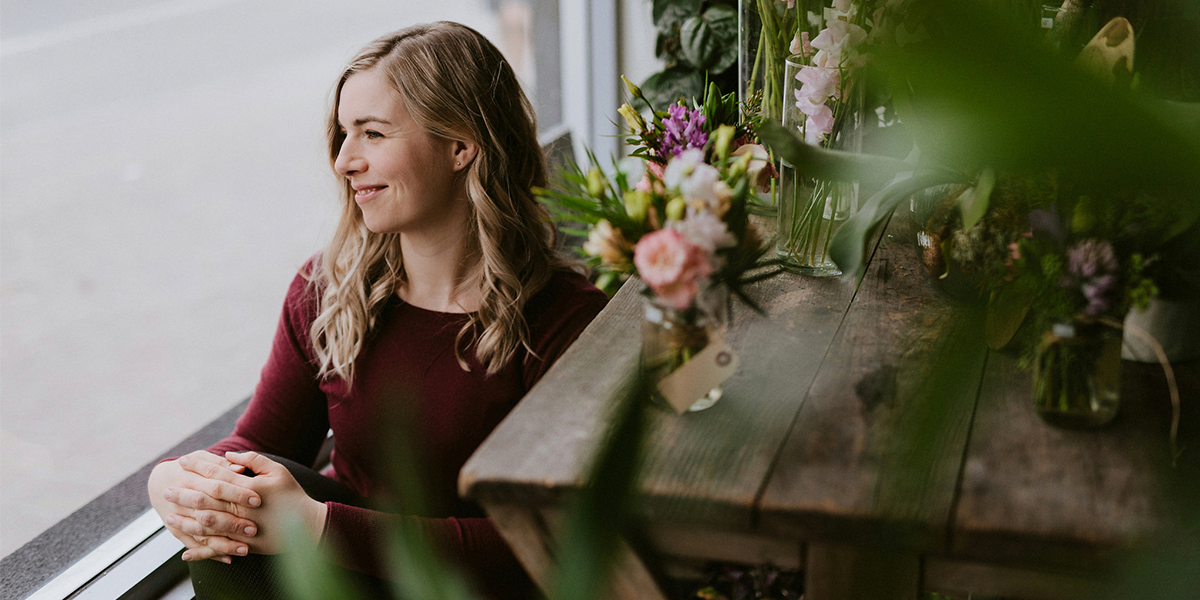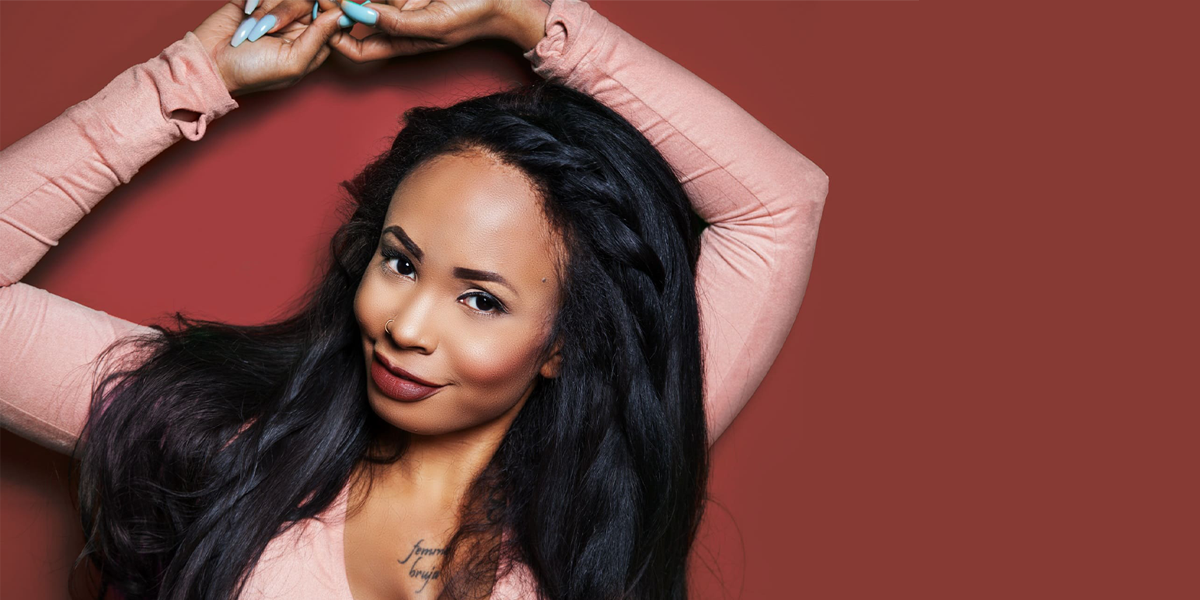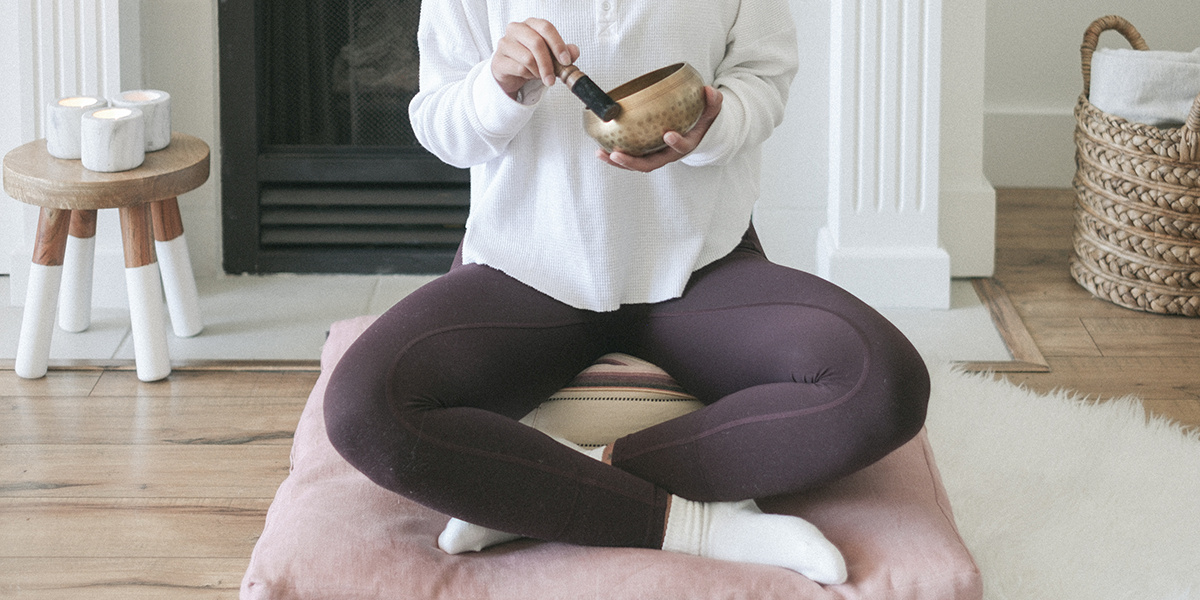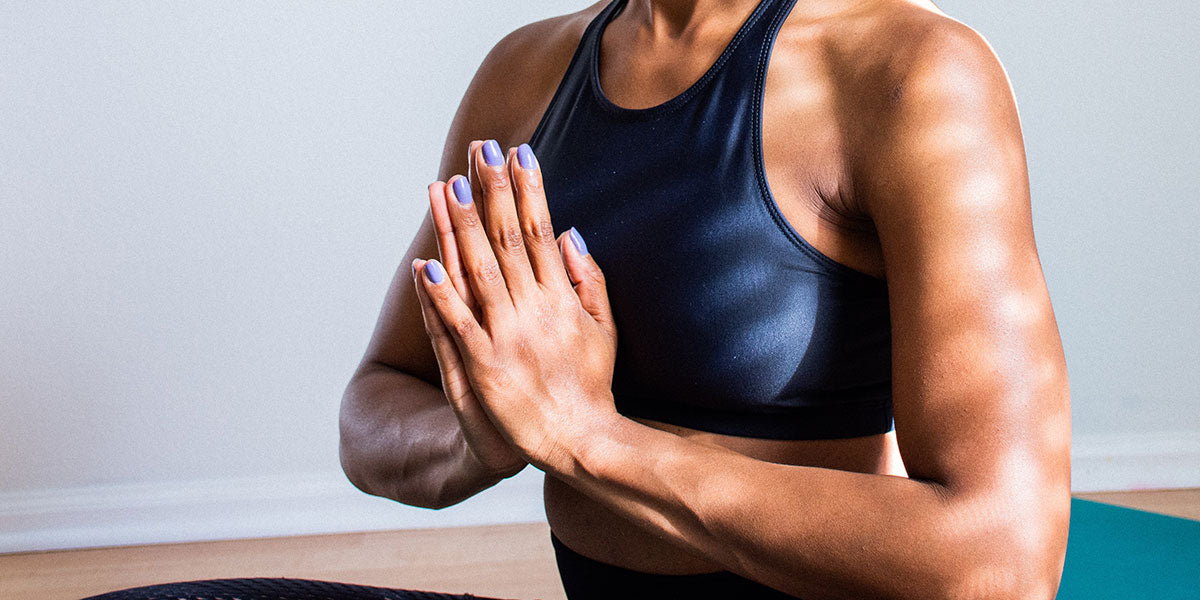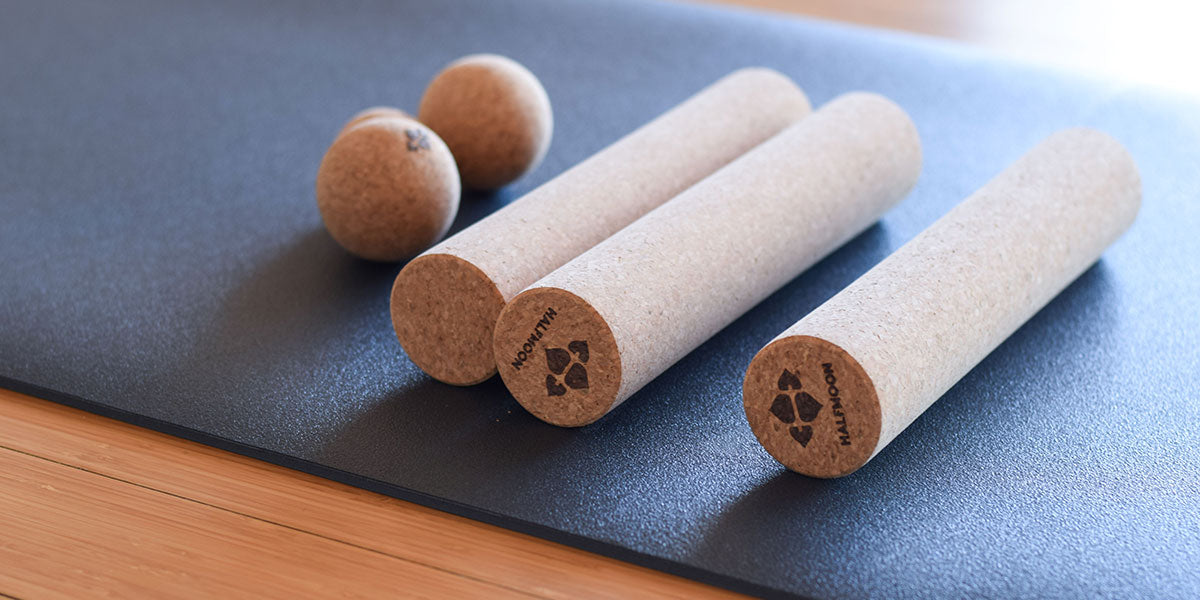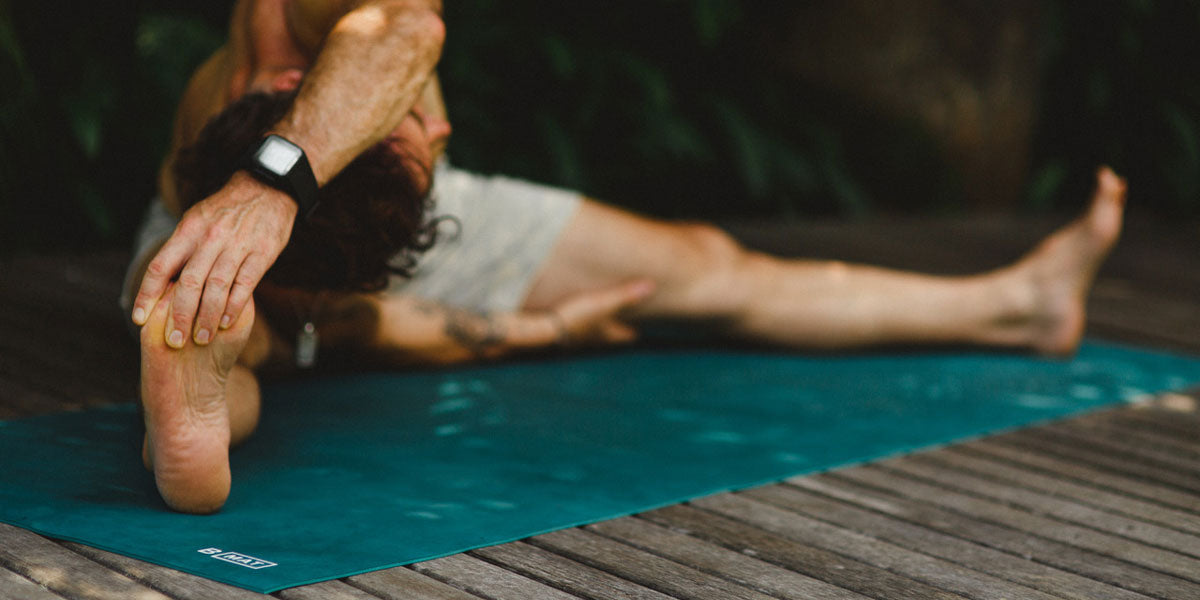Kim Katrin is a multidisciplinary activist, artist, educator and yogi. She is an inspiring advocate for anti-racist, queer, trans and feminist issues. She has spoken at various panels, conferences and universities across North America, contributing to publications such as Cosmo, MTV and Buzzfeed and she has been working with us here at b, halfmoon over the past several weeks supporting our commitment to Anti-Racism, Diversity and Inclusion.
Kim sat down with our Partnerships & Community lead Connor to discuss and share more about how she got started as an anti-racist educator, how her yoga practice informs her work and three key pieces of advice she offers health & wellness professionals who are looking to make their spaces and programs more accessible. You can watch the full 3-Part Series on our Instagram TV - @shophalfmoon.
Here are some highlights from the conversation below!
“I think at the core, the work that I do is really a commitment to equity and to human rights and wanting to work with people in ways that feel really meaningful and also are really transformative. I like working with people really to help support them on their own healing journeys. When I'm working in spaces that are around anti-racism or equity or justice, I'm really interested in helping people engage in uncomfortable dialogue in ways that can be really healing.I have a skincare line too so even that is about self-care and healing. And there is a really clear theme in a lot of the things that I do, because it comes from a place of genuinely really caring about people and wanting to see us have healthier relationships and have more of a commitment to love and to justice in the ways that we work with.
I think Tony Morrison says, “activism is kind of our rent for being on the planet”. And I sort of think about it like that. I feel really called and I think we should all feel really called to move out of humility and to be in service to other people, because it really does give life this incredible meaning. That's really where you feel like, wow, this is part of my purpose in being here on this planet for such a short amount of time. I am always asking myself the question of what am I leaving behind? Like, what is the legacy of what we're doing here with each other? And I think that when we are in service to each other and in service to a broader vision, then you can really have a sense of what your purpose is, why you're here and how we can really support healthy connections with each other.
When I was younger, I started to really ask questions of, how did it come to be that all of these different cultures are within me. My mom is Venezuelan and East Indian and my dad is Scottish and Dominican. So when I started to ask those questions, that was really when I started to understand ideas around colonization or the Transatlantic Slave Trade, or just understanding the movement of people. And then when I went to university, I became very interested in understanding genocide and a lot of human rights issues.
I visited Auschwitz in Poland and I really wanted to understand what made people do horrible things to each other. Like if we are all connected, we're all human beings, we're all the shared species. But over time we've seen obviously great acts of love, but we've also seen like incredible acts of hate.
And I really wanted to understand why that was happening and what was the root of those kinds of movements and the more I think about it the more I felt like I always knew where I was going. And the more that I knew, the more that I learned, the more that I wanted to share. I love learning. And I was so excited and so passionate about it. And I recognize that learning wasn't always that kind of experience for most people. So I really wanted to make learning accessible and make this information accessible and hopefully work in a way that helps people come together. Right now, this is such an intense time in our history and you see a lot of violence happening, but also you see these really beautiful, beautiful movements of people trying to do better. And I've always been on the side of that. I understand that there are going to be violent things that happen in the world, but there's so many of us who really want to do better. And how can I be a part of that? How can I amplify and accelerate this movement of people in the world who really do want to do better and care about each other and believe that we need each other.”
Connor: When our capacity to experience violence expands, it also means that there is an opportunity to expand our capacity to love. It’s not just one or the other. So with all the things that are happening there is so much beauty in being able to explore new ways of educating and opening up new ways of having these conversations. I often find that there is a moment or a time specifically that draws an individual to the practice of yoga. So how did you come to discover your yoga practice and how has that informed, not only your life experience, but really your work and your service?
“I think that yoga had always been around me in different ways, but I didn't become connected to it until I was at university and a friend of mine let me know that she was going to a yoga class. Her name was Coco Finaldi and she was a new mom and she taught the class with her baby, like strapped to her chest. And I just remember being totally in awe because her baby was just blissed out. It was just so peaceful. Baby was just breathing with us. Smiling with us. And it was one of these really transformative moments for me, because I'd always been very athletic. I was a cheerleader in high school. I did dance and gymnastics. And so I always loved movement in my body. When I got into yoga for the first time, the combination of movement and meditation was just, well you know, you have to be present with your breath. You have to be present in the moment and every time you wander off you have to just come back. There's something about the practice that keeps you coming back to being in your body. And I think one of the things that has always been important is, yoga is a tool for working through and around trauma. Because if you are somebody who's experienced trauma, you don't necessarily feel super safe in your body. And yoga was and is this practice where I feel safe in my body. I felt like I wanted to be there. And it wasn't about what my body looked like. Dance and gymnastics is very much what you look like, the performance of it, which is super fun and I love that because I love that performance, but it wasn't about what I looked like. “
3 Things Health Professionals Can Do To Make Space More Accessible
Before we begin conversations with others. We want to have these conversations with ourselves. And so one of the things I always talk to people about is having a journaling practice. Do that kind of shadow work, ask yourself questions. One of the things I always invite people to ask themselves is, identify a person that you don't like and write down why you don't like them and then go back through it and identify what traits you think you also have. Because I think that one of the challenges is that when we’re trying to talk to and change other people, you have to check your energy. Before you begin the conversation, ask yourself, are you trying to make yourself feel good and give yourself more power in this relationship?
I used to talk about this a lot. Hurt people, hurt people, but healed people, heal people, you know? So if you're really starting to begin to have these conversations with people in your life, you really gotta be very invested in your own healing and your own honesty with yourself.
I had to be honest, like why did racism mean so much to me? Like, Oh, okay. It has a lot to do with me feeling like I needed to learn more about who I was and I felt untethered in a particular kind of way. And so I had to be really honest about those things before I could go out and talk to people, because I also had to tell people where my prejudice was.
Are you one of those people who gets really annoyed every time you have to wait for someone else? Like you have to find those things in yourself because that's where you'll connect to other people. Have a different thought, change your mind, change your approach. And when you can share with people that you're struggling with it too, that you work on it too, then people can feel not that this person is better than me but rather they’re trying like me.
Here are three things health and wellness professionals can do to make spaces more accessible.
- Understanding the importance of access.
Access is so crucial. Accessibility is so crucial. Even physical accessibility. I think that sometimes we, especially when we're in fitness and wellness, we like to put it out of our minds that at one point in our life, we probably will experience some kind of disability.We feel like we’re super strong and we have muscle, our yoga game is just on point and we can’t imagine a time where things might not look like that for us. Recognizing that so many people are dealing with that all the time, a lot of the time we shut that out because it’s our own internal fear. So just really thinking about the design, when you make things more accessible you increase the experience for everyone. You’re also creating a world you want to live in, in the future too. So it’s important that it’s not just for you, it’s for everyone in your community.
2. Admit when you don’t know what you’re doing.
I would say it’s good to admit when you don’t know what you’re doing, to be able to say as a studio owner, or if you own a gym that you don’t know what you’re doing. It’s ok to say I’m learning more about anti-racism, or how not to be sexist, but I don’t actually know what I’m doing. I’m doing my best and I’m trying to figure it out. I'm really open to having feedback and I'm really happy to talk to people about it. But I don't know what I'm doing. I think that that's one of those things I'm really nervous about or I'm really scared of. And I'm really worried about what other people are gonna think about me.
Tell people the truth. I think a lot of the times we feel like we have to have it all together. So when people announce like an issue, they're like, Oh, this is what we're going to do. And it's going to be great. And then if someone critiques it, they're like. I tried so hard. How could you, how could you be upset at how hard I tried?
Whereas if you were able to say, we're trying out this initiative, I've never done anything like this before I'm personally really afraid and it might not work out or people might be upset about it, but I'm trying to be vulnerable. And I look forward to hearing back from you and hopefully we can create a space where we can honestly talk about it.
Just lay it out on the table versus trying to act like you have it all together. This is the most beautiful solution.
3. Recognize that practice makes improvement.
We’re going to continue to work on it, continue to get better, but know that we’re never going to be perfect. These issues around inequities in our world literally took hundreds of years for us to get to this place. We’re actually doing a really good job, I think, at engaging in this and trying to unpack it and figure it out. There's obviously there's people who don't want to unpack these things and we can’t do anything about it, you can’t make people do things that they don’t want to do, but we can set really clear boundaries about what we’ll allow in our spaces and what we won’t allow in our spaces. I think that having integrity is making the choice that is more difficult and more uncomfortable but will be better for us in the long run.
Sometimes I think we just want the fun part. We want to get into the super fun part, but it’s when you do the work and you lay the foundation that the fun afterwards is so much more liberating and so much more rewarding.
Do the hard work with each other first. Hard work is what builds real relationships. When you go through something difficult with someone you are bonded. You struggled with someone and they now have your back.
So I think that sometimes we feel like the only way we'll have great relationships is if we only do fun stuff together, but it's actually not true. It’s doing the difficult things that builds the stuff that makes you feel like you can trust someone to really do the fun things.
